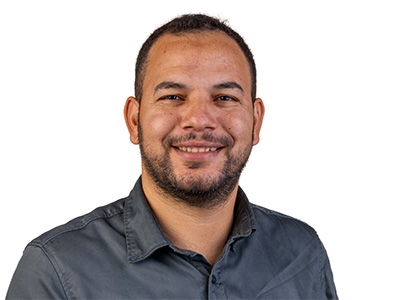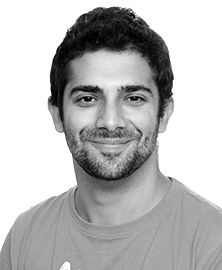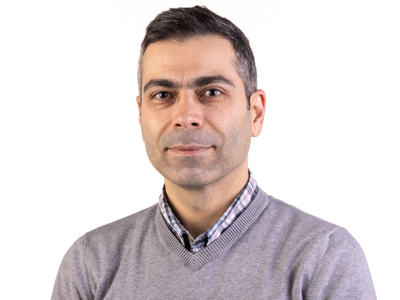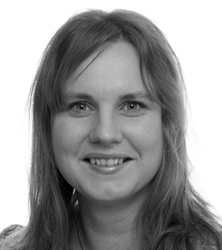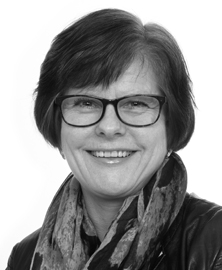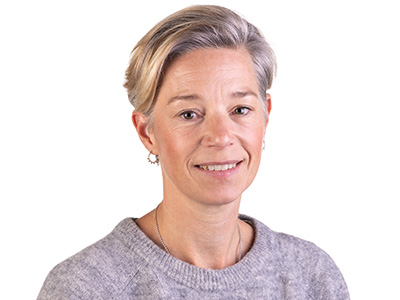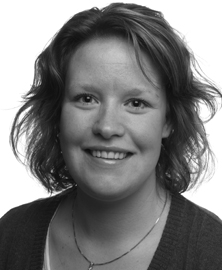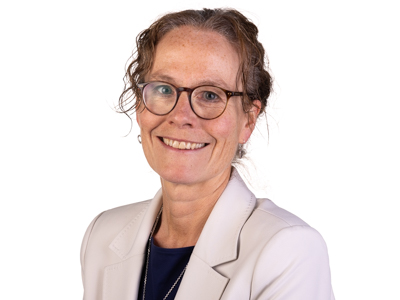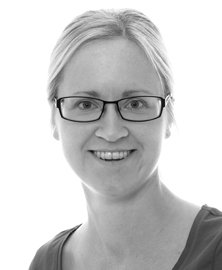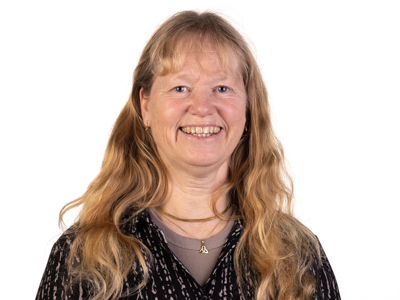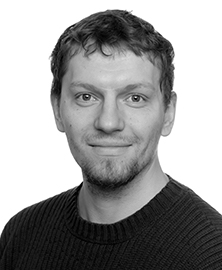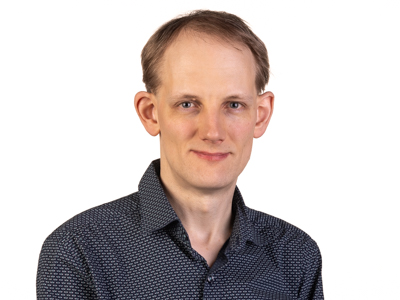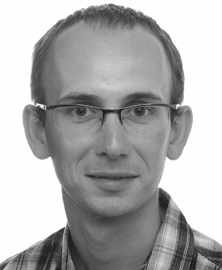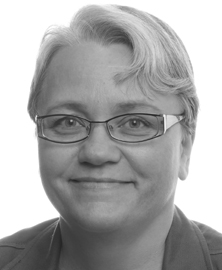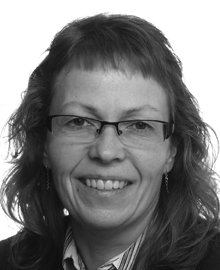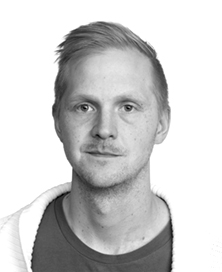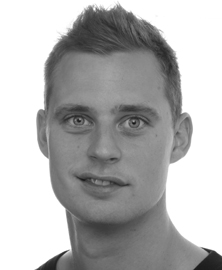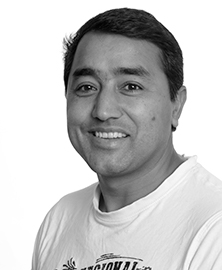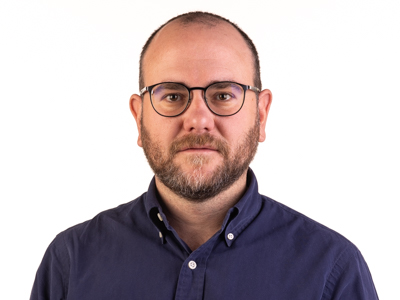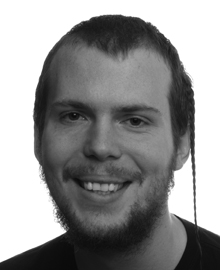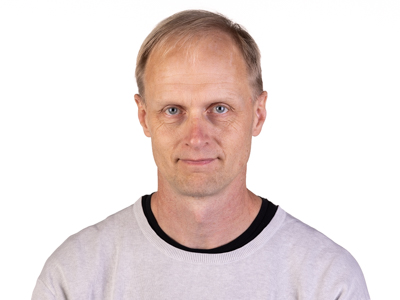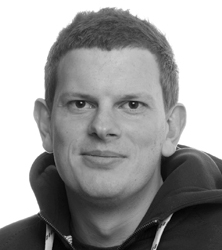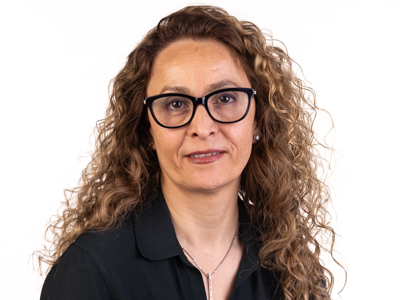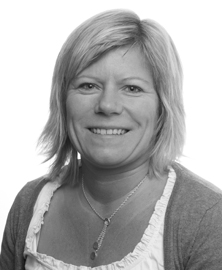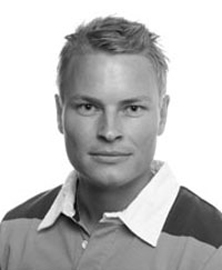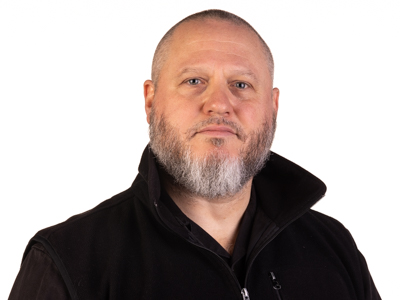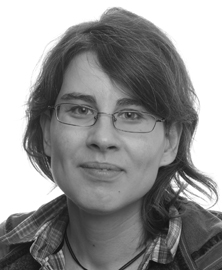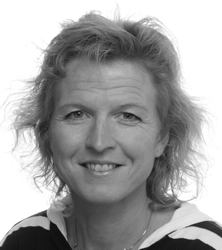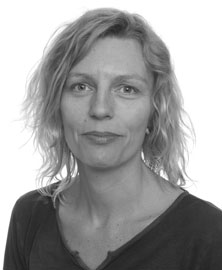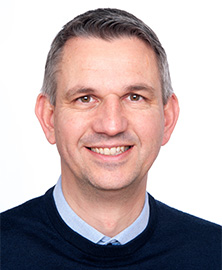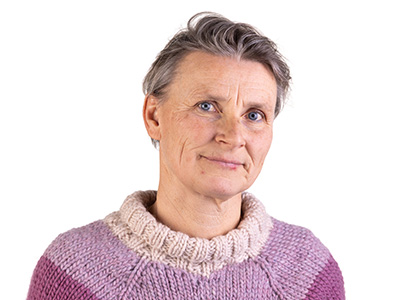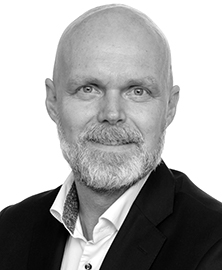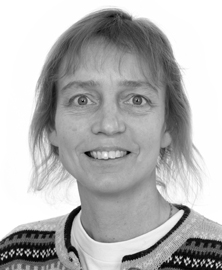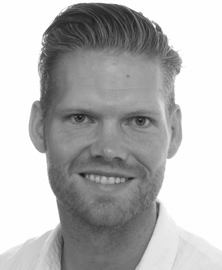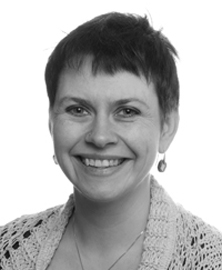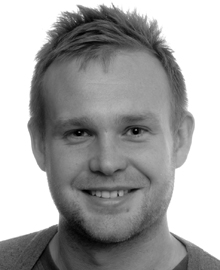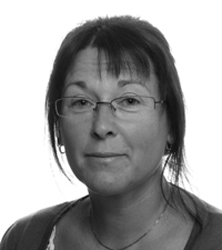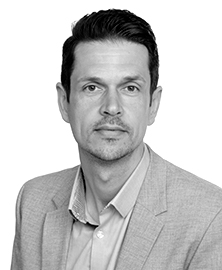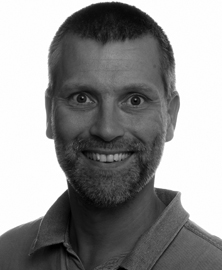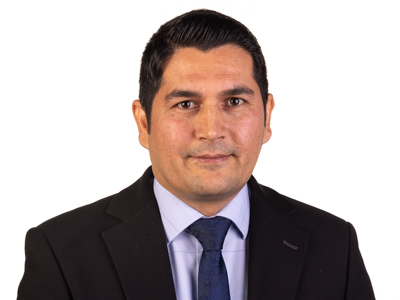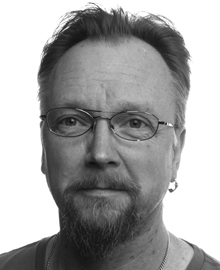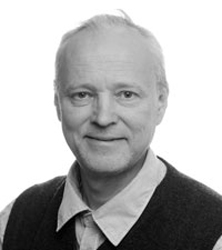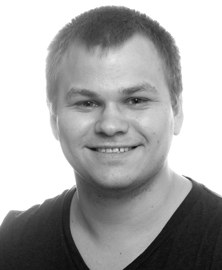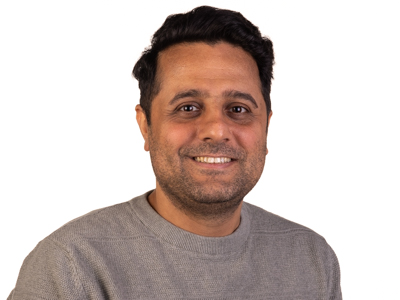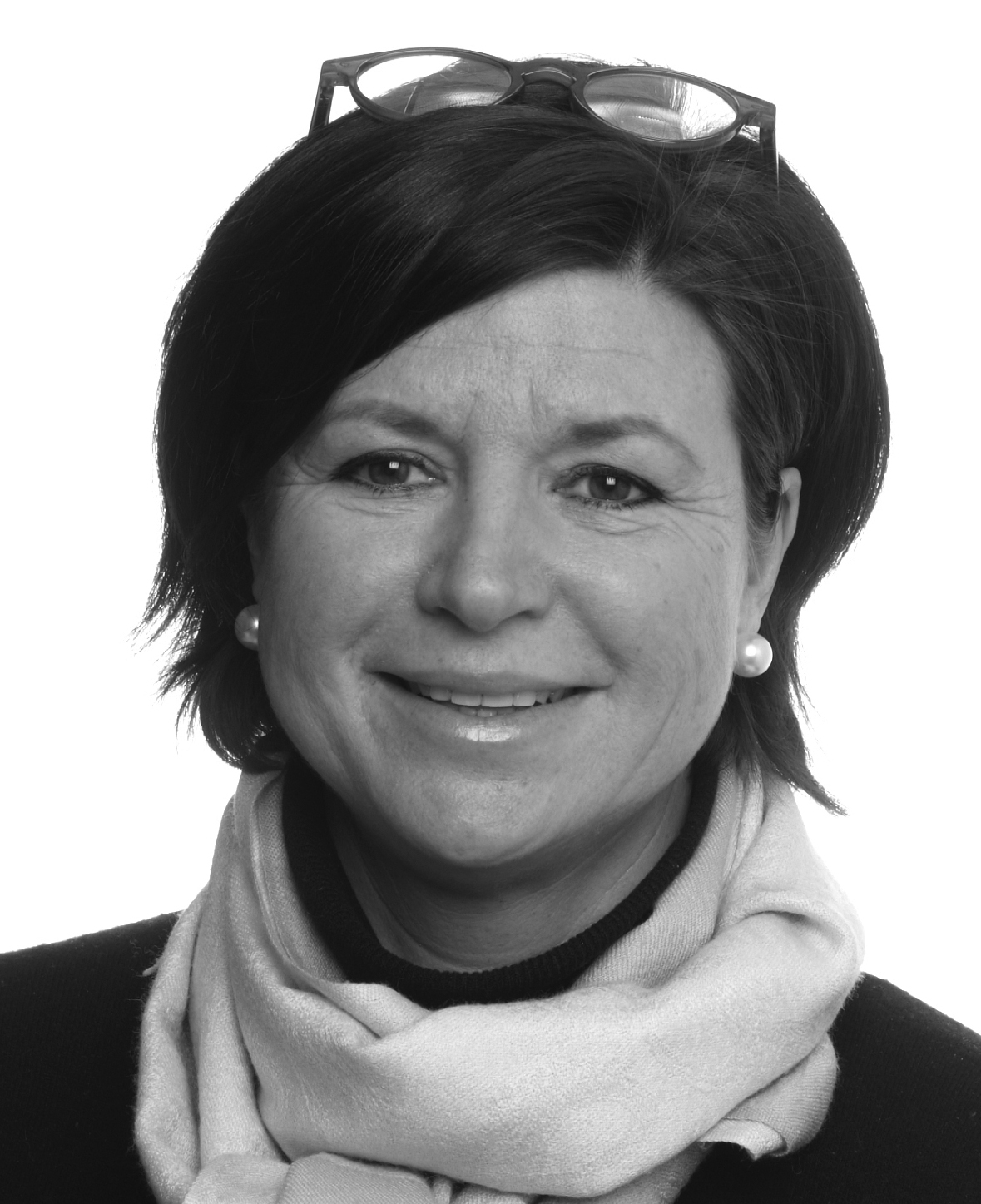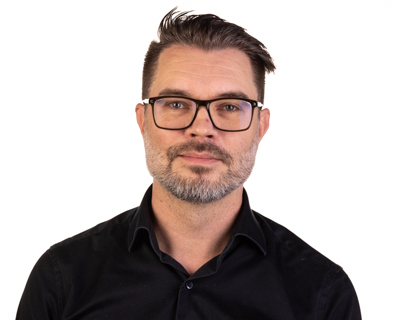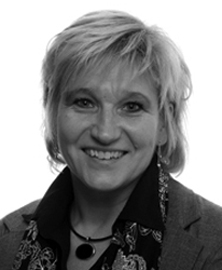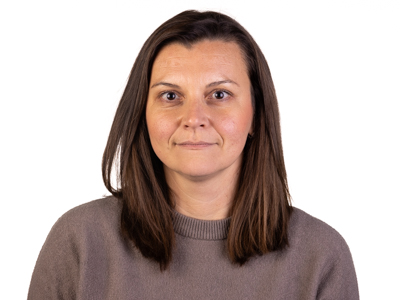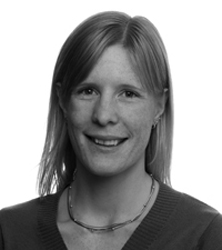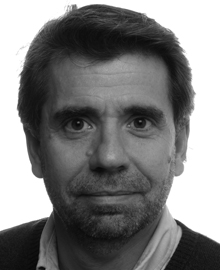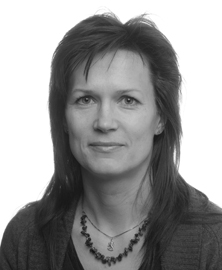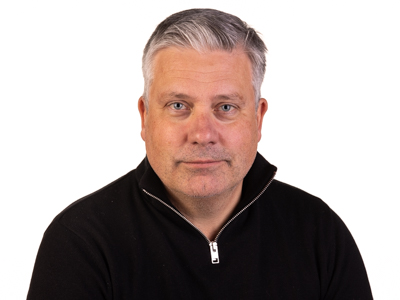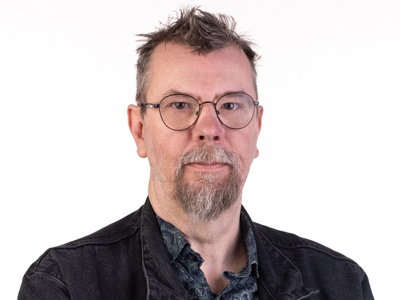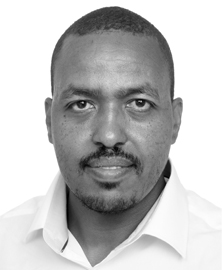Find Research
Search for researchers, research groups, projects and partners. You can search by free text and/or filters.
Search result
Virtual Engineering
User Centred Product Design
2015-2017
The project 3D-SILVER (Decision-making Support using Information in Layout Visualization and Ergonomics Representation) (Vinnova, Produktion2030, 2015-01451) aims to provide decision makers in producing industries with better virtual tools for layout planning, ergonomics assessment and workplace design.
Virtual Engineering
User Centred Product Design
2006-2009
The context of the 4D Ergonomics project (VINNOVA/MERA, Dnr 2005-01998) is the simulation of humans in manual assembly tasks. The project builds on the previous ViPP project.
Virtual Engineering
Production and Automation Engineering
2021-2024
For companies to stay competitive, resilient and sustainable in an ever-changing world, extreme flexibility in the production processes is required to be adaptive and agile.
Systems Biology
Cognitive Neuroscience and Philosophy
2023-2025
The rubber hand illusion experiment manipulates body perception by making people feel that a fake hand is their own. A standard questionnaire assesses this illusion, with specific statements targeting two aspects: the "referral of touch" (RoT) from the fake hand and the "sense of ownership" (SoO) over it. Despite the questionnaire's popularity, its psychometric properties haven’t been rigorously analyzed, and RoT and SoO items are often used interchangeably in studies.
Informatics
GAME Research Group
2018-2021
The Studio Ludum project harnessed the positive momentum within gaming and gaming culture to engage young people in finding their place in society.
Informatics
Interaction Lab
2011-2015
The goal of this project is to provide comprehensive solutions to the problems of scene and object representation and behavioral sequence generation in cognitive autonomous robots.
DHEAR
Family-Centred Health FamCeH
2017-2022
This project is an ongoing doctoral project at the University of Skövde. There is a global interest in and concern with various health issues. Globalization affects individuals’ health and well-being and leads to worldwide migration.
Informatics
Skövde Artificial Intelligence Lab
2015-2020
An unprecedented growth of data, fed by novel technologies, user behaviour and business models, is one of the most dramatic and important developments in both ICT and society at large. Most of this is Big Data, characterised by vast volume, high velocity, large variety and unknown veracity. These properties pose significant challenges when collecting, managing and processing data.
Systems Biology
Translational Bioinformatics
2013-2016
Human pluripotent stem cells (hPSC) are characterized by their unique capacities of self-renewal and differentiation, and, as such, they provide an excellent human cell source in basic research, drug discovery and regenerative medicine.
Virtual Engineering
Production and Automation Engineering
2021-2025
Manufacturing industries are constantly challenged by the market to improve product quality, increase production efficiency, ensure safety, and enhance sustainability. In this project, the team will be analyzing the interactions between digital systems and the physical world to see: Is it possible, with the target users’ satisfaction and safety in focus, to integrate optimization-enabled Digital Twins with Augmented Reality and other advanced sensing technologies to drive manufacturing companies toward a more agile configuration and operation in the industry 4.0 era?
Virtual Engineering
User Centred Product Design
2021-2024
The purpose of the project Automated Design and Optimisation of Vehicle Ergonomics (ADOPTIVE) is to study the physical vehicle user interaction and develop methodology for advanced vehicle ergonomics analyses within simulation tools.
Informatics, Virtual Engineering
Skövde Artificial Intelligence Lab, Virtual Production Development
2025-2028
In a manufacturing system, quality, maintenance and production are interrelated and influence one another. In the project, the researchers are exploring how AI can be used to analyse these aspects collectively.
Systems Biology
Ecological modelling
2019-2024
Ecology as a science has lacked a general scientific theory capable of making predictions on ecological phenomena on various levels, but now a candidate for such a theory exists. This is termed the Metabolic Theory of Ecology (MTE) and states that energy use (metabolism) is a central process for all organisms that partly can be predicted from body size and then used to make predictions on ecological processes at the population and community level. However, there is some scepticism towards MTE as a general theory and so far the empirical support for it is mixed. In this project, different predictions of MTE will be studied to test the theory and see if and how it may need to be modified.
DHEAR
Translational Medicine TRIM
2015-2020
Human hairy skin contains a special type of nerve fibers, so-called CT-fibers that respond to slow stroking across the skin, such as a caress.
Oxytocin, a hypothalamic nonapeptide, is released e.g. through light touch, caresses, warm temperature etc. Oxytocin release can be linked to well-being, stress reduction and other health-promoting effects. These anti-stress effects are particularly strong when oxytocin is released in response to low-intensity stimulation of the skin.
In this project, we want to study the relationship between activation of CT-fibers and release/activation of the oxytocin system in response to light touch. Some genetic variations that have previously been linked to touch responses will also be studied.
Systems Biology
Cognitive Neuroscience and Philosophy
2024-2025
This project explores whether intentional binding—an effect that reflects our experience of having control over our actions—also occurs when we observe others performing an action.
DHEAR, Systems Biology
Translational Medicine TRIM, Infection Biology, Translational Bioinformatics
2025-2033
The AI-Driven Precision Medicine (AID-PM) initiative aims to position Sweden nationally and internationally as a leading actor in precision medicine. Through close collaboration between academia, industry and healthcare, new AI-based solutions will be developed to improve diagnostics, treatments and drug development.
Informatics
Interaction Lab
2023-2026
The overall goal of this project is to create a sustainable workplace where autonomous robots and humans work together safely and efficiently.
Informatics
Interaction Lab
2015-2019
AIR investigates action and intention recognition in human interaction with autonomous systems (or AIR, for short). More specifically, the focus is on the interaction of humans and autonomous systems that move in shared physical spaces.
Systems Biology
Cognitive Neuroscience and Philosophy
2022-Ongoing
In this project, we are investigating the role emotion regulation difficulties play in alexithymia and how these difficulties may translate to various mental health disorders.
Systems Biology
Translational Bioinformatics
2017-2020
Within AlgorOmics we develop and implement algorithms for integration, visualization, and analysis of large-scale omics data, with applications in stem cell differentiation and drug development.
Informatics, Virtual Engineering
Interaction Lab
2025-2026
The purpose of the project is to strengthen the interaction between girls with neurodevelopmental disorders (NDD), from the age of six, and their guardians as well as grandparents. This is to be achieved through a specially developed computer game within the field of Serious Games, games that combine game mechanics and engagement with goals related to, for example, health and learning.
DHEAR
Family-Centred Health FamCeH
2024-2026
Hjärnkoll is a national organization whose work aims to increase knowledge about and reduce the stigma surrounding mental health issues. The core of its activities is ambassadors who give lectures and foster discussions on the subject. This project aims to understand the motivations of young ambassadors and their experiences of ambassadorship in middle and high schools.
Informatics, Virtual Engineering
2016-2018
At the ambulance station in Skövde, a unique simulation environment for training personnel began to take shape in 2016. Two years later, 110 ambulance nurses had been trained, inspiring the development of simulation-based training for prehospital care in Sweden.
Systems Biology
Cognitive Neuroscience and Philosophy
2014-2028
This project investigates how anesthesia and sleep modulate the content of subjective experiences during unresponsive periods, and how using anesthetics and sleep as tools may help us reveal the neural correlates of consciousness.
Systems Biology
Cognitive Neuroscience and Philosophy
2024-2026
The project studies the philosophical topic of “appearance and reality” both in physics and in cognitive neuroscience.
Systems Biology
Biotechnology
2012-2016
Contamination with heavy metals, such as arsenics, is a severe threat to human health and the environment. The fundamental goal of this project is to develop a new variety of the strategically important crops such as rice and wheat for elimination or reduction of arsenic contamination in human foods and the environment. However, the long-term goal of the project is to protect several hundred million people around the world from severe diseases caused by arsenic poisoning through consumption of contaminated foods.
Systems Biology
Cognitive Neuroscience and Philosophy
2021-Ongoing
The project focuses on the electrophysiological correlates of consciousness, and in particular investigates the auditory awareness negativity (AAN), the visual awareness negativity (VAN), and late positivity (LP), which all are event-related potential (ERP) waves and the main electrophysiological candidates for being robust correlates of perceptual consciousness.
School of Engineering Sciences
PAT
2015-2020
Augmented reality (AR) is a technology that is starting to reach maturity, with AR smart glasses (ARSG) showing great potential for seamless integration. With this we are facing a paradigm shift with early adapters starting to integrate ARSG into production but with a majority not still taking the step. This project aims to enable more and faster integration of ARSG into production. The method used is to develop a tool for assessing compatibility for specific production lines to guide in the first steps of integrating ARSG as an operator support tool in assembly.
Virtual Engineering
Production and Automation Engineering
2018-2020
Since inspecting the quality of die-cast and hot-pressed metal components is mostly done manually, increased automation in this step would substantially increase the competitiveness of die-casting foundries and hot-pressed metal component manufacturers. The project therefore intends to develop, test, and evaluate vision systems for automating the quality inspection of die-cast and hot-pressed metal components.
Virtual Engineering
Production and Automation Engineering
2012-2018
Even successful industrial production often has areas for improvement—and bottlenecks that cause delays. But which improvement actually has the greatest impact? In his research, Jacob Bernedixen aims to automate and optimise a model that identifies which improvement will benefit the company the most.
DHEAR
Wellbeing in Long-term Health Problems
2019-2022
The Swedish part of the BaltSe@nioR 2.0 joint project is headed by associate professor Catharina Gillsjö at the School of Health Sciences, University of Skövde. The partnership in the project includes a number of partners from countries around the Baltic Sea and is financed by the Interreg BSR, the Baltic Sea Region Program.
Systems Biology
Translational Bioinformatics
2015-2018
The pharmaceutical industry has an urgent need for in vitro model systems with high human relevance that can be used for toxicity testing, drug development, and disease modelling. The project aims at developing a human in vitro model based on human pluripotent stem cells that can mimic important aspects of the blood-brain-barrier.
Systems Biology
Translational Bioinformatics
2020-2024
Artificial intelligence (AI) is an important driving force that is rapidly transforming health care and pharmaceutical industries in several ways. The vast amount of biomedical data available today poses unique opportunities to develop a repertoire of AI-based models. Although the results from studies using AI for solving biomedical problems are encouraging, there are numerous scientific challenges associated with AI for life science applications that need to be addressed.
Systems Biology
Ecological Modeling
2020-2023
The marine algae belt is one of the most active primary producing environments in the sea. It harbors a great diversity of animals including sea squirts, ribbon/nick/serpulid and spionid worms as well as ghost shrimps. Globally there exist over 7,000 species with around 250 species from Norway. The knowledge about their taxonomy and dis-tribution is poor. Specimens in museum collections are often quite old and wrongly determined. Many of these taxa include invasive species causing high economic dam-age in aquaculture and ship transportation. This is why we urgently need a field inven-tory to collect species from the Skagerrak up to 70°N i Norway. With morphological and molecular methods, we will determine the species and learn more about their dis-tribution.
Systems Biology
Translational Bioinformatics
2015-2019
The aim of this project is to contribute with improved methods for analysis, integration, and visualization of biomedical big data. Recent years it has been a massive digitalization of all types of data and information in the society and the majority of all information in the world is nowadays anticipated to be digitalized. This encompasses enormous possibilities for generation of new knowledge but also puts demands on competence and tools for analysis and interpretation of big and complex data, e.g. to identify and extract patterns and information from different data sources. To meet these increasing demands of large-scale data analysis more competence, better and faster algorithms, and powerful computers are needed for execution these algorithms.
Systems Biology
Ecological Modeling
2015-2018
Human expansion of land use through agriculture and forestry is globally one of the main drivers of reduced biodiversity. This exploitation has also led to increased greenhouse gas emissions and decreased carbon sequestration. Sweden’s goal of net-zero greenhouse gas emissions by 2050 means that society will need to shift towards extensive use of biofuels and bio-based materials. This will entail significant future changes in land use, requiring us to also assess the resulting environmental impacts.
Systems Biology
Translational Bioinformatics
2017-2022
This project is one of the three subprojects within the synergy project BioMine - Data-mining for biomarker discovery, selection, and validation. In this subproject we investigate how large-scale biomolecular data can be used to identify specific biomarkers for disease modelling
Systems Biology
Translational Bioinformatics
2017-2022
This project is one of the three subprojects within the synergy project BioMine - Data-mining for biomarker discovery, selection, and validation. In this subproject we investigate how large-scale biomolecular data can be used to identify specific biomarkers for toxicity testing. The project is performed in close collaboration between the University of Skövde, AstraZeneca Gothenburg and Takara Bio Europe.
Systems Biology
Infection Biology
2017-2021
This project is one of several ongoing projects in the research "Future diagnostics of sepsis". The goal is to develop earlier and more accurate diagnostics for sepsis in order to increase the chance of patients suffering from survival and with less disease complications.
Systems Biology
Translational Bioinformatics
2017-2022
In the BioMine project (Data-mining for Biomarker Discovery, Selection, and Validation), studies are performed on how large-scale biomolecular data can be mined to enable discovery and validation of multilevel biomarkers in Life Science.
Systems Biology
Biotechnology
2012-2016
With this project we aim to initiate and develop a sustainable and cost effective method for the removal of heavy metals and other toxic chemicals from the nature, particularly from contaminated water and cultivated lands.
Informatics
Skövde Artificial Intelligence Lab
2015-2019
Big data has gained much interesting in recent years due to the rapid expansion of the massive amount of data that is available for solving different types of tasks within many different application domains. However, today's big data is still on a fairly low level of abstraction when it comes to complex decision support tasks, subject to e.g. high dimensionality and significant portions of uncertainty regarding which patterns to look for in the data.
Informatics
Distributed Real-Time Systems
2021-2022
Over the past years, Sweden has seen a large increase in micro producers, owner of energy system. That means more installations of low voltage distributed generators and energy production systems, such as solar panels, bioelectrical energy, wind energy etc., have been connected to traditional grids. The Swedish system is set-up in a way that a micro-producer can either consume the electricity the energy system produces or feed it into the grid. The electricity not used is automatically delivered.
2022-2025
The application of the emerging INGENIUM Alliance of European Universities met the required criteria for the Horizon Europe, Call HORIZON-WIDERA-2021-ACCESS-05-01 – Capacity building to strengthen networks of Higher Education Institutions (HEI) and cooperation with surrounding ecosystems.
Systems Biology
Cognitive Neuroscience and Philosophy
2024-2025
The experience of the body is considered to be constructed out of multisensory cues that involves a variety of sensory modalities. These involve for example somatosensory cues from the skin, proprioceptive cues from the muscles, but also interoceptive cues such as heart beat and respiration.
Organising for Sustainable Development
Strategy Flexibility Entrepreneurship and Resilience (SFERE)
2020-2022
This project builds on the "Business Revitalisation in Skaraborg" initiative. It focuses on stable small and medium-sized enterprises in the Västra Götaland region that have operated steadily over time. Research indicates that the main reason these companies do not grow is a lack of growth ambition among leadership.
DHEAR
Wellbeing in Long-term Health Problems
2019-2024
The elderly are becoming a bigger share of the population and more older people still have their own teeth. Elderly people who need municipal care are also on the rise and this places demands on nursing staff to have the skills needed to assess and care for the oral health of the elderly. Performing oral care is not an easy task, as it can be perceived as an invasion of privacy. Neglected oral health can also lead to poorer overall health. It is possible to prevent poor oral health with small means such as daily oral care.
DHEAR
Family-Centred Health FamCeH
2025-2026
The aim of the research project is to investigate whether digital tools offering cognitive behavioral therapy (CBT) can be used to enhance interventions targeting individuals with risky alcohol use.
DHEAR
Translational Medicine TRIM
2023
We are investigating whether the risk of developing diabetes can be reduced by avoiding gluten in the diet and whether probiotic supplements (Probion Active) can have a similar effect.
Systems Biology
Translational Bioinformatics
2017-2021
The advancement in stem cell research over the last decade has now made it possible to generate large quantities of human specialized cells for in vitro applications. Specifically, in the drug discovery and development process this has important implications. The project involves studies of the genetic and molecular basis of hypertrophy and aims to develop new knowledge that can contribute to the development of novel therapies and treatments that can reduce cardiovascular morbidity and mortality.
Informatics
Information Systems
2016-2021
In this project a large variety of stakeholders are enabled to explore what collective action strategies are most effective to create resilience for payment system disruptions in the food system, the fuel system, the finance system and society at large.
Systems Biology
Cognitive Neuroscience and Philosophy
2023-2025
The study aims to integrate motion capture and wearable eye tracking to create a fully ecological setup that quantifies humans' ability to perceive others' gaze directed at different parts of their own body.
DHEAR – for a healthier and more sustainable soci
Family-Centred Health FamCeH
2021-2025
The health processes of children and adolescents are affected by contemporary societal discourse on values, identity formation and digitalization. It is important to make visible sexual diversity, enable healthy relationships and to prevent relationship violence. Digitalization may be utilized to contribute to and sustain health in an undertaking to gradually advance equal and sustainable development in society when supported by a health-promotive approach and a focus on the identification of resources over time.
Informatics
Software Systems Research Group (SSRG)
2014-2016
Cloud and Internet Services with Open Source Software for SMEs (CISOSS) is an is a two years (2014-2016) ERASMUS+ project involving a number of European partners including University of Skövde.
Systems Biology
Ecological Modeling
2023-2028
The CLANCY project will increase the capacity of the North Sea Region to preserve climate-adaptive, biodiverse ecosystems, through management of the Chinese Mitten Crab.
Informatics, Organising for Sustainable Development
Information Systems, Leading and Organising Transition (LOT)
2022-2024
Research literature on digital transformation predominantly focuses on private enterprises and large, resource-rich organisations, while we know less about digital transformation in smaller public organisations with limited resources. In this case, six municipalities in Västra Skaraborg (V6) have chosen to address their limited resources by collaborating on increased digitisation of municipal operations and through a shared IT function within the municipal federation Göliska IT.
Informatics
Information Systems
2025-2026
Drones are playing an increasingly important role in crisis management and are used by authorities, volunteer organisations, and researchers. To ensure effective collaboration, common operational procedures are needed.
Virtual Engineering
Virtual Manufacturing Processes
2017-2020
Virtual models continue to develop in the area of machining. The finite element method (FEM) is the dominating method for performing simulation of the cutting process. Much research is conducted to obtain reliable models that can be used to model complex cutting processes in industrial applications.
Systems Biology
Cognitive Neuroscience and Philosophy
2020-2027
This project investigates how the COVID-19 pandemic affected dreaming, mind-wandering and well- and ill-being.
Informatics
Distributed Real-Time Systems
2020-2021
The research idea behind the project is to address the challenge and to provide technical solutions to understand and improve CPS-based resilience for critical infrastructure protection (CIP). The research is planned for a future EU-funded project application to collaborate with academic and industrial partners in the EU.
Virtual Engineering
User Centred Product Design
2013-2016
The CROMM (Creation of Muscle Manikins) project (Vinnova Dnr 2012-04584) will result in a user friendly and highly automated software.
Informatics
Information Systems
2023-2025
The Cybercrime project aims to investigate the demographic, socioeconomic, and technological dimensions of cybercrime. The overarching goal is to contribute to strengthening preventive efforts against this phenomenon and thereby reduce its negative consequences for individuals and society.
Informatics
Information Systems
2024-2029
Over the last decade, our society has become increasingly digital, with advancements in areas like smart cities, smart industry, and critical infrastructure. To safeguard their assets and data, organizations must prioritize cybersecurity measures. Organizations must stay vigilant, invest in cybersecurity, and adopt informed countermeasures to navigate the evolving digital landscape.
Informatics
Skövde Artificial Intelligence Lab
2017-2021
Companies keep store a large quantities of data about us, as e.g. our electronic transactions, traces of our internet usage, phone calls and social network posts. This information is valuable for the companies and also for the users as data permits personalization in services. Nevertheless, some of this information is confidential.
Informatics
Distributed Real-Time Systems
The DeeDS architecture is a distributed real-time systems architecture developed for complex real-time systems by the DeeDS project.
Systems Biology
Translational Bioinformatics
2022-2024
In this project we develop and implement an innovative Deep-Learning (DL) based method for quality assessment for industrial use. By using human embryonic stem cells as a model system, we develop in different steps a neural network (NN) classifier for a stepwise prediction of the cell state (quality) of these cells using quantitative PCR (qPCR) data.
Informatics, Virtual Engineering
Interaction Lab, User Centred Product Design
2014-2018
The aim of the project was to establish an open, dynamic, and long-lived ecosystem for research, innovation, and education in the field of smart textiles.
Informatics
Skövde Artificial Intelligence Lab
The research directly contributes to Saab's technology and product development by creating a new method with unique properties for detecting anomalies in movement patterns, such as those of ships.
Systems Biology
Infection Biology
2014-2017
All over the world, soilborne bacteria and fungi cause severe crop diseases which lead to substantial problems in agriculture due to serious yield losses of great economic impact.
Informatics
Information Systems
2020-2022
The project aims to develop a tool (a browser plugin) designed to help users act appropriately in potentially risky situations online. The tool will detect when the user is in a potentially risky scenario and provide information to guide them in handling the situation safely.
DHEAR
Wellbeing in Long-term Health Problems
2023-2028
In DigiSTRENGTH, the goal is to promote healthy aging by providing structure and space for existential conversations, where a central component is to identify small and large goals that provide strength, joy, and meaning in life.
Virtual Engineering
User Centred Product Design
2008-2009
The purpose of the research project Digital Albert (KK-stiftelsen Dnr. 2007/0137) is to improve the efficiency of product development processes by exchanging knowledge and experiences about user centred design methods and technologies between the two branches: vehicle and health care industries.
Systems Biology
Cognitive Neuroscience and Philosophy
2025-2027
Human mental health encompasses both negative dimensions (mental illness) and positive dimensions (mental well-being). Good mental well-being has been shown to be a key factor in resilience against mental illness, making it a central aspect for individuals in achieving sustainable mental health. But what interventions are effective on an individual level for promoting mental well-being?
DHEAR
Wellbeing in Long-term Health Problems
2021-2027
Today's society is digitalised in many areas, with increased social interaction occurring online. According to previous studies, the group in society that experiences the greatest digital exclusion is older adults. Therefore, it is essential to urgently intensify efforts to help older individuals acquire greater digital skills and to understand and describe how their digital abilities can be enhanced.
DHEAR
Research on Citizen Centered Health (Reacch US)
2021-2025
A more sedentary life and a diet high in sugar have created public health problems in low-income countries - heart disease has become increasingly common in the population. To help prevent this development, researchers at the University of Skövde, Mid Sweden University and two Nepalese universities will examine existing knowledge among parents and school children in Nepal and develop a digital health education.
DHEAR
Family-Centred Health FamCeH
2024-2026
The project aims to analyze the relationship between adolescents’ body image, social media usage, and mental health, leveraging interdisciplinary expertise to navigate these intertwined areas.
DHEAR
Family-Centred Health FamCeH
2019-2024
The research project Digital Parental Support research project was initiated in 2019 as a pilot project collaboration and includes researchers from the research group FamCeH at the University of Skövde (the School of Health Sciences), researchers from the School of Information Science at the University of Skövde, University of Borås, the Labor and Postnatal Ward at Skövde Skaraborgs Hospital and Antenatal Clinics Skövde and, Västra Götalandsregionen.
DHEAR
Wellbeing in Long-term Health Problems
2020-2024
A major issue is the stress that nurses experience in their work and how it affects their health and well-being, as well as leading them to leave the nursing profession. This problem has become even more evident during the global pandemic. The overarching aim of this project is to develop digital support for managing work-related stress.
DHEAR
Family-Centred Health FamCeH
2023-2031
The project studies the effect of digitisation in an emergency department from multiple perspectives. The project will map how patients find their way to the emergency department in different ways, and will investigate how the introduction of new digital solutions impacts patients and staff.
Virtual Engineering
User Centred Product Design
2022-2024
Through an increased degree of digitization, industrial work instructions in the last 20 years have given an increasingly digital representation.
Systems Biology
Translational Bioinformatics
2023-2026
Advanced Therapy Medicinal Products (ATMPs) is a rapidly emerging field in medicine with great potential, where there is a growing need for robust and accurate methods to characterize and classify processes to assess safety aspects. This project gathers stakeholders from academia, research institutes and industry from various disciplines to develop AI-based methods for safety assessment of ATMPs.
Systems Biology
Translational Bioinformatics
2018-2021
The DMDPipe project aims to develop a pipeline for identifying and analysing disease-causing modules of interacting proteins. The project is expected to contribute to the development of individualised diagnostics and treatment for asthma.
Informatics
Information System
2022-2025
The purpose of the DOME consortium is to build knowledge about the implementation and use of eHealth services and is based on studies of e-health projects. We do research in cooperation with the parties involved in the establishment of Online Patient Records in Sweden.
Informatics
Distributed Real-Time Systems
2017-2025
We are all heavily dependent on software in our daily life. Software control our cars, phones, bank accounts etc. Failures are frequent and sometimes catastrophic. Software testing aims to reveal faults before the software comes into use.
Informatics
Interaction Lab
2014-2019
DREAM is a project funded by the European Commission and coordinated by the University of Skövde. The goal is to deliver the next generation robot-enhanced therapy (RET) for children with autism spectrum disorder (ASD), developing clinical interactive capacities for social robots that can operate autonomously for limited periods under the supervision of a psychotherapist.
Systems Biology
Cognitive Neuroscience and Philosophy
2018-2028
The aim of this project is to establish and maintain an international open database that contains both sleep EEG and associated dream data.
Systems Biology
Cognitive Neuroscience and Philosophy
2019-2027
This project aims to assess how traumatic negative events affect subsequent dreaming, utilizing the Threat Simulation Theory (TST, Revonsuo, 2000) as the theoretical background.
Systems Biology
Cognitive Neuroscience and Philosophy
2020-Ongoing
“Why we dream” remains one of the biggest unanswered questions in science. In this project, we have set out to address this question by investigating the phenomenology, dynamics, and correlates of dream experiences.
Virtual Engineering
Production and Automation Engineering
2016-2018
The project is within the area of Industry 4.0 closely related to the application and technical solutions proposed by Efficient Equipment Engineering E3.
Systems Biology
Infection Biology
2014-2016
This project is one of several ongoing projects in the research "Future diagnostics of sepsis". The goal is to develop earlier and more accurate diagnostics for sepsis in order to increase the chance of patients suffering from survival and with less disease complications.
Informatics
Software Systems Research Group (SSRG)
2024-2026
EDU4Standards is a three-year research project within EU Horizon 2020 that aims to innovate standardisation education within European Higher Education Institutes.
2015-2021
Iman Morshedzadeh is a PhD student within IPSI. He is developing an information structure for managing virtual models and their related data, in the product lifecycle management (PLM) context. Iman started his research in April, 2015 and plan on being finished in 2021. This research is partly funded by Volvo Cars Engine factory, and the results of this research will be used by them for implementation of a PLM system in their factory.
Informatics
Information Systems
2020-2021
In order to detect crises well in advance, the municipality needs to monitor what is happening in the world. Today there is no clear method for this: everyone does in their own way. In the ELISA project we take inspiration from a method used in the municipality's crime prevention work: Effective Collaboration for Security (EST). In this method, different organizations report each week what happens in society and assess together what trends occur and what different actors in society can do to respond to these events. What if the municipality could to continuously and systematically gather information in the same way to detect crisis?
Informatics
Distributed Real-Time Systems
2017-2020
The Elvira project develops time-based infrastructure dependency analysis for the power-grid to model risk assessment and resilience index, which assist decision makers in anticipating failures and their cascading effects.
Systems Biology
Cognitive Neuroscience and Philosophy
2021-2025
In collaboration with the University of Würzburg in Germany, this project seeks to investigate the mechanisms of disembodiment by conducting behavioral experiments in virtual reality.
Systems Biology
Ecological Modeling
2019-2024
In today’s biodiversity crisis, there is an urgent need to monitor terrestrial and aquatic species in their natural habitats, especially those that may be endangered, invasive or elusive. Studies conducted within this project will lead to a new metod of tracking down threatened species, the results will be integrated into current monitoring programmes (e.g. red-listing) and action plans.
Informatics
Information Systems
2015-2017
The Erasmus+ project OMI (Open Model Initiative) has the goal to create teaching material and an modeling environment for enterprise modeling to be used for master and PhD education in Europe.
Organising for Sustainable Development
Strategy Flexibility Entrepreneurship and Resilience (SFERE)
2023-2025
The purpose of the project is to develop knowledge about entrepreneurial resilience in small and medium-sized enterprisesin the context of managing multiple crises.
Informatics
Distributed Real-Time Systems
2010-2012
Information Fusion for Energy Efficiency.
DHEAR – for a healthier and more sustainable soci
Translational Medicine TRIM
2016-2025
Enzymatic inhibitors that slow down the production of ROS (reactive oxygen species) have been shown to be effective in mitigating the effects of a stroke. Additional effects, such as reduced growth of cancer cells have also been detected. This area of research is very exciting as no approved drugs with similar effects are available today.
Informatics
2015-2020
The results of the project are intended to help the industry improve its environmental performance in production operations and comply with future regulations.
Systems Biology
Ecological Modeling
2013-2016
Like many other lakes and wetlands, Hornborgasjön has been utilised over the past couple of centuries to expand agricultural and forestry land. At Hornborgasjön, five water level reductions were carried out, and by the 1930s, the lake was almost completely drained. It became overgrown with riparian forests, shrubs, sedge, and reeds. Following a government decision, a restoration project to recreate the bird lake began in the late 1980s. Reeds were removed, and forests and shrubs were cleared. The water level increase commenced in 1992 and was completed in 1995.
Informatics, Virtual Engineering
Skövde Artificial Intelligence Lab, Virtual Production Development
2024-2028
The project investigates how industrial companies can predict maintenance needs even when there is limited data on new machines and components.
Virtual Engineering
User Centred Product Design
2022-2025
The EWASS project is going to assist the industry in ensuring a sustainable work-life by empowering human workers during assembly of wire harnesses by using simulations and robots.
School of engineering
IPSI
2015-2020
In nowadays manufacturing industries there is usually a lack of knowledge in decision makers and stakeholders to optimize production and logistics flows considering the shop floor layout. Decision support system through Simulation-Based Multi-Objective Optimization can be a significant approach for production and logistics system improvement. The main benefits are optimized solutions with an increased efficiency of the production, internal logistics and required space on the shop floor layout. Usually at a lower cost than consultancy companies, obtaining just the best optimal solutions and with the possibility of analyzing them without interrupting the system. The application of research with Simulation-based Optimization in manufacturing leads to significant improvements of complex systems as demonstrated in major manufacturing companies working together with universities and research centers.
Informatics
Skövde Artificial Intelligence Lab
2021
Artificial intelligence and advanced data analysis are enhancing Swedish elite golf.
Virtual Engineering
Virtual Manufacturing Processes
2024-2025
Designing fixtures for flexible manufacturing systems is a challenging process that often results in costly mistakes. By testing fixtures virtually, companies can save time and money. This research explores new methods to improve this process and optimize manufacturing outcomes.
DHEAR
Translational Medicine TRIM
2020-2025
The study is a human study for healthy volunteers who for three weeks replace their usual diet with a ketogenic diet. Metabolic, microbiotic, neurobiological and clinical parameters are measured before and after the study. This means that a whole-body perspective is taken into account when it comes to health, but also the mental part as well as how the mentally status linked to the dietary change.
Informatics
Software Systems Research Group (SSRG)
2017-2019
The FOSS4SMEs is a two years (2017-2019) collaborative Erasmus+ project involving Atlantis Engineering, Open Forum Europe, University of Skövde, DLEARN and the Dublin Institute of Technology, which aims at bringing education on free and open source software to small- and midsize enterprises.
Virtual Engineering
Production and Automation Engineering
2020-2022
This project wants to test the use of Augmented Reality (AR) to improve the medical simulation by increasing the ability to empathize and provide a better environment for training and learning for the entire trauma team at Skaraborg Hospital in Skövde (SkaS).
Systems Biology
Ecological Modeling
2016
Göta älv is Sweden's largest watercourse and is utilised for various purposes. It serves as a source of drinking water, is used by industries for cooling and processing water, acts as a recipient for wastewater, supports power generation, and functions as a shipping channel. Human exploitation of the river has negative impacts on aquatic ecosystems.
DHEAR
Wellbeing in Long-term Health Problems
2018-2024
In the early stages of their professional career, nurses may need to develop both practical skills and theoretical knowledge. The Clinical Base Year is an initiative aimed at providing newly graduated nurses with opportunities to grow in their profession through education, supervision, and reflection.
DHEAR – for a healthier and more sustainable soci
Research on Citizen Centered Health, University of
2019-2020
The level of physical activity is constantly declining among children and adolescents. School children today do not reach the recommended level of activity needed to maintain good physical and mental health, in the present or for the future. The FUN project aims to develop digital aids and applications that will encourage pupils with neurodevelopmental disorders (NDDs) to increase their level of physical activity.
Informatics
GAME Research Group
2021-2022
Future Media Theaters brings together partners from industry, academia, and the cultural sector in Sweden, the UK, Hungary, Austria, Belgium, and the US who are all working together to investigate and create new forms of performance using interactive technologies.
Virtual Engineering
Production and Automation Engineering
2025-2029
How can factories keep running when energy prices rise, machines break down, or labour conditions change suddenly? The SMART project explores this question by redefining how manufacturing works in Sweden. Its focus is on creating systems that are not only stronger and more adaptable but also environmentally responsible and centred around people.
Informatics
Interaction Lab
2019-2021
Game Hub Scandinavia aims to strengthen the Scandinavian position in the global game community. In the Game Hub Scandinavia project researchers and business developers’ work together to build knowledge and networks in the global game development community in order to support Scandinavian studios on the global game market.
Informatics
GAME Research Group
2024-2027
Game Tech Academy's goal is to unlock the potential of game technology to apply it not only in creating games but also to address societal challenges in areas such as healthcare, culture, education, industry, and more.
Informatics
GAME Research Group
2022-2023
In the project, we aim to create a shared platform for open and critical discussions about children's and young people's gaming habits.
Virtual Engineering
Production and Automation Engineering
2024-2025
Digitalisation and new technologies are fundamentally transforming the manufacturing industry. Despite the fact that diversity enhances innovation and sustainability, women remain underrepresented. By exploring how digital transformation can promote gender equality, this study aims to pave the way for a more inclusive and successful industry.
DHEAR – for a healthier and more sustainable soci
Translational Medicine TRIM
2015-2021
We investigate genes that cause cancer aggressiveness. We specifically focus on the childhood cancer tumor neuroblastoma, which occurs in the nervous system of young children. Some tumors are more aggressive than others, and the difference is what has happened to the genes in the tumor. If the tumor has lost some of the genes on chromosome 11, the child has a poor prognosis. We test the properties of genes that have been lost, to see if those specific lost properties are something that will benefit the tumor cell. We want to replace those properties through different types of treatments, and in this way kill the tumor cell. We analyze clinical/genetic data and make experiments in cultured cells and in fruit flies.
Systems Biology
Ecological Modeling
2008-2015
In this research project we study several of the suggested causes for the decline of great Arctic charr, using a combination of field experiments, analysis of historical data and analyses of mathematical models.
Systems Biology
Cognitive Neuroscience and Philosophy
2024-2028
The project focuses on investigating psychopathology, well-being and quality of life in children with headache.
DHEAR
Wellbeing in Long-term Health Problems
2023-2025
The purpose of HeADS is to study digitization, social community, participation and health and the connection between them. The study is carried out in collaboration with the municipality of Skövde, which wishes to gain a greater understanding of what needs exist among the municipality's residents, in order to best meet the needs that exist.
Informatics
Distributed Real-Time Systems
2013-2016
The HELICOPTER proposal aim at exploiting ambient-assisted living techniques to provide older adults (end users) and their informal caregivers with support, motivation and guidance in pursuing a healthy and safe lifestyle.
Virtual Engineering
Virtual Manufacturing Processes
2024-2027
This project aims to propose a commercial smart energy management systems prototype based on supervisory control and data acquisition systems to monitor and control local generation and consumption.
Systems Biology
Ecological Modeling
2025
Winter mortality in honey bees is a major problem for Swedish beekeeping. In this project, we are investigating how different overwintering diets affect the bees' gut flora, health and colony development. The aim is to generate new knowledge that can help beekeepers improve bee survival and contribute to a more sustainable beekeeping system in Sweden.
DHEAR
Family-Centred Health FamCeH
2024-2026
The research project focuses on examining how eye movements and biomarkers are affected by moderate alcohol consumption. The study aims to conduct and evaluate digital measurements of eye movements and biomarkers.
Virtual Engineering
Virtual Manufacturing Processes
2025-2028
The AI-CAST project aims to develop new methods for using artificial intelligence to monitor and optimise high-pressure die casting of magnesium alloys in real time. The goal is to create a more reliable and sustainable manufacturing process through smart data analysis and machine learning.
Organising for Sustainable Development
Leading and Organising Transition (LOT)
2024-2027
The aim of the project is to enhance understanding of how politics can serve as a health-promoting factor in municipal operations. Other structural conditions are also studied to relate the impact of politics to other factors.
Informatics
GAME Research Group
2016
What is it that makes electronic sports a positive experience for the spectators, and how can that experience become even greater? A research project at the University of Skövde will give an answer to those questions. The project, partly financed by the Västra Götaland region, is a collaboration between the University and the computer-game company Stunlock Studios as well as two more partners: Tarhead Studio and Folkuniversitetet.
Systems Biology
Cognitive Neuroscience and Philosophy
2024-2026
This research focuses on hypnosis, and aims to produce a theoretical article that revisits the phenomena first observed and described by early researchers such as Bernheim, Liebault, and Bertrand.
DHEAR
Translational Medicine TRIM
2025-2027
The project aims to improve the treatment of Myelodysplastic syndrome that currently lacks effective treatments.
Virtual Engineering
Production and Automation Engineering
2021-2024
Predictive maintenance is one of the major thrust areas for many global manufacturing companies. Artificial intelligence, big data analytics and industrial internet of things (IoT) have already shown great potential in the area of maintenance. However, as more companies adopt these technologies, several key challenges have emerged hindering the progress towards complete digitalization of maintenance operations.
Virtual Engineering
User Centred Product Design
2009-2013
The objective of the IMMA project (ProViking/PV09.13) is to develop a path planner tool that finds a collision free and biomechanically acceptable way for a part and the human who is assembling the part, seen as a system.
DHEAR, Informatics
Wellbeing in Long-term Health Problems, Information Systems
2023-2026
Elderly are vulnerable in many ways, especially with regard to isolation and involuntary loneliness. Welfare technology can break this isolation. One example of welfare technology is personal security alarms. An issue with this type of alarms is that they increase the risk of isolation as they only work in the users’ home. Meaning that people with reduced physical function and/or cognitive impairments are at risk of becoming isolated due to fear of falling or losing their way. An alternative to these alarms is GPS alarm.
Virtual Engineering
The research focuses on improving remaining lifespan estimates for on-condition components in aircraft engines.
Organising for Sustainable Development
Knowledge, Innovation and Marketing
2017-2020
Inbets BSR works on researching, developing and designing innovative and transferable models and tools to facilitate the transfer of small and medium-sized businesses. Professor Susanne Durstfrom University of Skövde is a partner in the Inbet BSR project, which includes several partners around the Baltic Sea (including Drivhuset Skaraborg).
DHEAR
Family-Centred Health FamCeH
2016-2020
Students with neuropsychiatric disorders (such as autism or ADHD) have cognitive functional differences that are not always visible but significantly affect their opportunities in various educational settings. This issue is particularly relevant in the subject of Physical Education and Health. Despite its significant impact on students' learning and opportunities for physical activity, many students with neuropsychiatric disorders either do not participate in lessons or fail to meet the course objectives. This is particularly unfortunate since Physical Education and Health is one of the subjects that can support students' health from a lifelong perspective.
Informatics
GAME Research Group
2014-2015
The project’s aim is to develop a framework for inclusive video game design. In this first exploratory study we are developing two games for smartphones and tablets that include players with visual impairments.
Informatics
Information Systems
2022-2023
Gaining a competitive edge over rivals should be a key concern for all organisations. Organisations that have advanced their use of sophisticated data analysis (predictive analytics, prescriptive analytics) beyond pilot projects and identify themselves as data-driven tend to be industry leaders.
Informatics
Skövde Artificial Intelligence Lab
2018-2020
Fusarium attacks on Swedish cereals in recent years have attracted increasing attention. While these attacks can lead to reduced harvests, the most serious effect is that this fungus can produce toxins. EU legislation has defined limit values for the content of Fusarium toxins because they are harmful to both humans and animals. Our project aims to develop a farm-based decision support system that will assess the risk of Fusarium attacks and elevated levels of deoxynivalenol (DON) in cereals. It can be used by both advisers/consultancies and farmers.
Informatics
2013-2020
In this project, a framework for small and medium-sized enterprises will be developed and tested to improve and ensure the secure management of mobile devices.
Informatics
Information Systems
2019-2020
The project is a preliminary study aimed at establishing a European consortium for research on how context-based micro-training can support users facing risky situations or making security-related decisions online.
2023-2026
The INGENIUM European University is an ambitious Alliance that brings together ten Universities from ten EU Member States, supported by a large group of associate organisations, ranging from regional and local governments to industry and civil society groups.
Informatics
Skövde Artificial Intelligence Lab
2021-2024
The iron and steel industry needs to be streamlined and the amount of scrap reduced to increase returns. What is required is a faster and more reliable production with stricter tolerances – then better products are created that reach the customer faster. This project, INSITE-X, will develop an AI-based prototype for detailed simulation of dynamic production-behaviour of critical machines, to increase process understanding and control.
Informatics
Interaction Lab
2023-2026
I2Connect focuses on developing next generation of Advanced Driver Assistance Systems (ADAS) for trucks. The emphasis will be on developing algorithms for fusion and situation assessment and prediction based on Evidence Theory, as well as adaptive human-machine interfaces (HMI).
Virtual Engineering
Virtual Manufacturing Processes
2019-2023
The project addresses the challenge faced by manufacturers of electromobility components: achieving a balance between quality, time, and cost.
Virtual Engineering
Production and Automation Engineering
2014-2017
Designing or improving a manufacturing system involves a series of complex decisions over time to satisfy the strategic objectives of the company. To select the optimal parameters of the system entities so as to achieve the desired overall performance of the system is a very complex task that has been proven to be difficult for a decision maker in the design/improvement process.
Systems Biology
Ecological Modeling
2021
Invasive alien species can affect biodiversity as they can compete with native species or spread infections. The consequences of alien species are often very costly. It is therefore important to detect invasive species as early as possible in order to control them. How is the situation in Lake Vänern? Researchers at the University of Skövde will carry out a feasibility study with the aim of taking an inventory of invasive alien crustaceans in the country's largest lake. Behind the assignment are the Lake Vänern Water Management Association and the county administrative boards around Lake Vänern.
Informatics
Skövde Artificial Intelligence Lab
2019-2022
Intention recognition is the task of inferring an agent´s intention based on its previous actions. It is crucial for human social intelligence which in turn enables understanding of, and for the ability to predict, other humans´ behaviours, such as for example other drivers´ intent to overtake, stop, turn, or switch lanes. For making situation-based decisions, both autonomous and human drivers need to take the intentions of surrounding vehicles into account. This is especially true in a mix of autonomous and human drivers.
Virtual Engineering
Production and Automation Engineering
2018-2026
Virtual factories with knowledge-driven optimization (VF-KDO) is an eight-year research profile that is being coordinated by the University of Skövde. Research within this profile aims to help strengthen the competitiveness of Swedish industry.
Informatics
GAME Research Group
2015-2021
KASTiS is a sub-regional collaborative and knowledge platform for the sustainable use of game technology and interactive media in Skaraborg. The project started 1 August, 2015 and ends on 31 July, 2018.
Virtual Engineering
Production and Automation Engineering
2020-2022
The long-term vision of this research is to support knowledge-driven decision making in Swedish industry, which in turn can contribute to leverage their overall productivity and competitiveness.
Systems Biology
Cognitive Neuroscience and Philosophy
2024-2028
The goal of this project is to better understand how different treatment frameworks affect both short- and long-term outcomes in ketamine treatment for treatment-resistant depression.
Informatics
GAME Research Group
2014-2015
Online “sexual grooming” is the process by which a child is befriended by a would-be abuser in an attempt to gain the child’s confidence and trust. In online interactions, children run the risk of being abused and some contacts may also lead to physical meetings where children can become subject to further abuse.
Informatics
GAME Research Group
2015-2021
KLUB is a sub-project and demonstrator within the KASTiS project, where the fictional characters Kira and Luppe experience adventures at cultural heritage sites in Skaraborg through a transmedia storytelling format. The narrative is based on intangible cultural heritage, legends, folklore, and mythical creatures.
Informatics
GAME Research Group
2019-2020
The game application The Paper Machine is a KLUB demonstrator and a co-design project by game developers Kristofer and Camilla Vaske, KASTiS project managers, and Linda Svensson at the Vadsbo Museum. In the game, the old paper machine from Katrinefors Paper Mill, now housed at the museum, is brought to life.
Digital Health Research (DHEAR)
Wellbeing in Long-term Health Problems
2019-2020
Around the world, research is ongoing to develop and deepen knowledge about eHealth services. The Swedish National Guidelines for Asthma and COPD has brought attention to the lack of relevant patient education for persons with COPD. As there is an uneven regional structure regarding COPD care in Sweden, resulting in unequal care for patients, self-care education is highly prioritized in the new National Guidelines.
Organising for Sustainable Development
Leading and Organising Transition (LOT), Strategy Flexibility Entrepreneurship and Resilience (SFERE)
2023-2029
How is society affected by the transformation within the automotive industry? Who are the winners and losers, and what are the consequences?
Systems Biology
Ecological Modeling
2019-2021
Sweden and the vast majority of other countries in the world have agreed to preserve biodiversity, ie the variation of species and natural environments. Man need biodiversity as the basis for ecosystem services. Some examples of ecosystem services are carbon sequestration that slows down global warming, water purification that gives clean drinking water and pollination that increases crops.
Virtual Engineering
Virtual Manufacturing Processes
2022-2025
The project will study and optimize joining processes for different stages of battery manufacturing, from battery cells to battery packs.
Informatics
GAME Research Group
2015-2020
The main focus of the Level Up project is to study if it by using gamification and game technology is possible to increase young citizens (16-39) consumption and re-distribution of news.
Informatics
Software Systems Research Group (SSRG)
2016-2020
The LIM-IT project is a collaborative research project running over four years, which involves Combitech AB, Findwise AB, Husqvarna AB, JAK, PrimeKey Solutions AB, RedBridge AB, Saab AB – ICT, Scania IT AB and University of Skövde as project partners. The project is financially supported by the Knowledge Foundation.
Virtual Engineering
Production and Automation Engineering
2024-2028
In the LITMUS project, researchers are exploring how companies can transition from today’s Industry 4.0 to the new Industry 5.0 by smartly utilizing their existing technologies. The goal is to combine efficient production with improved economic, social, and environmental sustainability.
Informatics
Skövde Artificial Intelligence Lab
This project focuses on reducing costs and risks in algorithmic trading while maintaining profitability through machine learning.
Virtual Engineering
Production and Automation Engineering
2017-2020
Future manufacturing will be characterized by the complementarity between humans and automation, especially regarding the production of highly customizable products.
DHEAR
Research on Citizen Centered Health (Reacch US)
2024-2027
Innovative interventions are crucial for addressing global healthcare burdens related to obesity and mental health. Therefore, this project will explore the interplay between diet, obesity, mental health, and the gut microbiome through a 12-week digital intervention study. The primary aim is to assess the feasibility and effectiveness of a dietary intervention on weight loss and mental well-being in obese individuals, while also investigating the gut microbiome's role.
Systems Biology
Infection Biology
2020-2023
This project is one of several ongoing projects within the research programme “Future diagnostics for sepsis”. The aim is to develop diagnostics that can be used earlier in cases of sepsis in order to increase the patient’s chances of survival with fewer complications.
Virtual Engineering
Production and Automation Engineering
2015-2017
The project ”Measuring and Managing Continuous improvements in Medium-sized Manufacturing Companies” (MMC²) is a collaboration between three schools at the University, The School of Engineering Science (Virtual Systems Research Center), The School of Informatics (Informatics Research Center) and The School of Business, and four medium-sized manufacturing companies in the west of Sweden.
Organising for Sustainable Development
Leading and Organising Transition (LOT)
2017-2020
A popular distinction within Swedish working life is to differentiate leadership from other managerial tasks, often based on the perception that a manager's most important role is to be a leader who inspires, motivates, and develops the employees they oversee. At the same time, managers are also expected to ensure budget compliance, achieve often ambitious production and quality targets, and ensure that various decisions are implemented and guidelines are followed.
Virtual Engineering
Production and Automation Engineering
2018-2021
Project vision is an open modular framework for efficient and interactive simulation and analysis of realistic human motions for professional applications. Within the European economy, digital modelling activities and the simulation of human motion in particular, have emerged during the last decades in various domains ranging from automotive and truck over healthcare, construction and pedestrian simulation to the gaming industry.
Systems Biology
Cognitive Neuroscience and Philosophy
2023-2025
Multiple realizability in nature is the PhD thesis of Roque Molina where he investigates multiple realizability and its analytical coherence, focusing specifically on whether there is empirical support for multiple realizations in nature.
Systems Biology
Cognitive Neuroscience and Philosophy
2023-2026
The project consists of a monograph on the philosophical implications of research within moral cognitive neuroscience.
Informatics, Organising for Sustainable Development, Virtual Engineering
Information Systems, Leading and Organising Transition (LOT), Production and Automation Engineering
2024-2025
Skaraborg needs to transition to meet the welfare challenge, the industrial transformation, and the goal of a more sustainable development. Achieving this requires many different efforts that many different actors also carry out at various levels in a complex puzzle. The "Network City Skaraborg" strategy contains proposals on how this can be achieved.
Systems Biology
Ecological Modeling
2015
Imagine an outbreak of a contagious animal disease. Imagine those combating the disease can travel forward in time. Imagine they do so using a simulation model that shows how the disease will continue to spread.
DHEAR
Translational Medicine TRIM
2003-2029
Neurogenetic disorder is a group of diseases or conditions that impair the functioning of the nervous system and muscles. Neurogenetic diseases are largely caused by defective genes, a mutation or error in the DNA instructions. There are an increasing number of gene mutations that have been identified in patients with neurogenetic diseases. There are, however, a large number of neurogenetic disorders with unknown causes.
Virtual Engineering
Virtual Manufacturing Processes
2023-2026
The project aims to collaboratively develop production processes for prioritised technological areas within electric drivetrains, where the industry has identified a significant and growing need for new knowledge and capacity.
Virtual Engineering
Production and Automation Engineering
2025-2028
How can manufacturing companies stay productive while reducing their carbon footprint and adapting to volatile energy markets? The AI-COMPETE project takes on this challenge by developing an AI-powered decision support system for sustainable manufacturing.
Virtual Engineering
Virtual Manufacturing Processes
2021-2023
The automotive industry is undergoing a technological shift towards electric powertrains. One of the greatest challenges to remaining competitive during this rapid transition is the ability to cost-effectively adapt existing production to manufacture new powertrains.
Informatics
Skövde Artificial Intelligence Lab
2009-2013
The project studied how information fusion, i.e. synergetic integration of available data and information, could be used to offer advanced decision support for tactical air unit cooperation in future aircraft platforms.
DHEAR
Translational Medicine
2016-2021
The scientific work that will be performed in this project is to explore new pathways of cancer treatment with particular focus on pancreatic cancer. These new ways of treatment are based on changing the functions of different signaling and metabolic pathways such as NADPH oxidase (NOX), reactive oxygen species (ROS) and metabolism which are known to be up-regulated or malfunctioning in cancer cells. By using different chemicals such as NOX inhibitors, digitoxin and ketone bodies inhibit their activity and thereby decrease the cell viability of the cancer cells. Focusing treatment on the differences between normal / cancer cells would help develop methods that inhibit cancer cells with less negative effects on normal cells.
DHEAR
Translational Medicine TRIM
2019-2021
We focus on the molecular link between androgen excess and the development of reproductive disorders, obesity, and type-2 diabetes in females. Our overall aim is to investigate new treatments and identify the underlying mechanisms that improves or protect against the development of diabetes and decreased fertility.
My line of research has evolved from more than 10 years of experience in whole-animal physiology studies involving endocrinology, metabolism and re-production.
Informatics
GAME Research Group
2018-2021
The project Off Season Art Gardening aimed to contribute to, and create, art works in public outdoor spaces in three different countries.
2018-2020
OMAR (The Arena for Collaboration) is a VINNOVA-funded project involving participants from the University of Borås, University West, Lund University, SLU, Jönköping University, Halmstad University, and Kristianstad University. The University of Skövde leads the project. OMAR is part of a series of similar collaboration-focused projects funded by VINNOVA.
Informatics
Software Systems Research Group (SSRG)
2015
To support contracting authorities planning to procure from the new framework agreements, the Swedish Public Procurement Agency at Kammarkollegiet has established a collaboration with researchers from the Software Systems Research Group (SSRG) at the University of Skövde.
Informatics
Software Systems Research Group (SSRG)
2018-2022
The aim of this project is to ensure sustainable management of water and
sanitation for all, and to promote the transition towards sustainable
value chains and inclusive and sustainable economic growth. We believe
that the development of digital twins, not only for the systems and
processes but for the water treatment infrastructure as a whole, can
open up for new efficient techniques and sustainable innovations.
Informatics
Interaction Lab
2023-2026
Digital tools based on AR and VR are increasingly used in industry to support operators. But how does it affect employees' skills and understanding of the systems they work with? The University of Skövde has been granted SEK 4.8 million to develop a guide for how the digital tools should be used in the manufacturing industry.
Virtual Engineering
Production and Automation Engineering
2008-2011
The overall aim of this proposed multi-discipline (industrial engineering and computer science) project is to leverage the effectiveness of the Swedish industrial and service sectors, by introducing the state-of-the-art simulation technology, namely simulation-based intelligent optimisation, to their system design and daily operations.
Virtual Engineering
Production and Automation Engineering
2018-2020
Informatics
Software Systems Research Group (SSRG)
2012-2015
Open Source software Reference Implementations for Open Standards Developing a reference model for improved competitiveness.
Informatics
Software Systems Research Group (SSRG)
2021-2023
The main outcome from the OSSD project is a one year master programme comprising courses of industrial relevance in the field of open systems which is developed in order to address future challenges concerning sustainable digitalisation.
Informatics
Skövde Artificial Intelligence Lab
2019-2022
Predictive Maintenance (PdM) using Artificial Intelligence (AI) and Machine Learning (ML) is the top-ranked use case in terms of business value of industrial digitalization. Not surprising since the annual maintenance cost in Swedish manufacturing industry is over 100 billion SEK and 60% of all maintenance activities are reactive.
DHEAR – for a healthier and more sustainable soci
Wellbeing in Long-term Health Problems
2019-2027
There is little known about the patient perspective in patients suffering from paroxysmal supraventricular tachycardia (PSVT), a condition with a sudden onset of fast heart rhythm. PSVT affects approximately 0, 2 – 1 % of the population in the Western world.
Systems Biology
Cognitive Neuroscience and Philosophy
2021-Ongoing
The research project examines Peace of Mind (PoM) as a central yet often overlooked aspect of mental well-being.
Informatics
Distributed Real-Time Systems
2013-2016
Model based development is used to increase software quality and software development productivity. Models are created at a platform independent level and then transformed to platform specific models by the use of a model compiler using the same principles as when source code is compiled into assembler.
Informatics
GAME Research Group
PlayLab is a high-tech performance space that explores the intersection of games, game technology and performing arts with researchers, artists, game students and youths.
Virtual Engineering
User Centred Product Design
2022-2025
The ongoing electrification of the automotive industry will initially lack competence, it is new knowledge that is required to take the automotive industry to the next phase. According to the EC, the loss of skills within the battery cell plants is estimated to be up to 800,000 people until 2025. And even the industry would have enough people, the factories are not yet built, which makes it impossible to train the person on site.
Virtual Engineering
Virtual Manufacturing Processes
2024-2027
By optimising microgrid design and sizing, it aims to improve efficiency, reduce emissions, and enhance the operational resilience of ports, offering a cost-effective, sustainable solution for cleaner energy systems in port environments.
Informatics, Virtual Engineering
Information Systems, Production and Automation Engineering
2024-2027
This project aims to use AI technology to predict the care needs of older adults. By analyzing patient data, AI can detect early signs of declining health, enabling timely interventions that can prevent costly emergency care and extensive aftercare.
DHEAR
Family-Centred Health FamCeH
2017-2022
The number of people with poor mental health has doubled in Sweden since the mid-eighties. Symptoms related to poor mental health are sleeping disorder, anxiety, irritability, stomach ache, back pains or concentration difficulties. WHO highlights mental health in adolescents as a high priority area that needs to be addressed to promote the agenda for sustainable development.
Virtual Engineering
Production and Automation Engineering
2022-2025
Optimal production planning is one of the most time-consuming and challenging tasks for many production experts, especially in diverse manufacturing environments where humans, robots, and machines work independently or collaboratively. Therefore, in this Industry 4.0 era, it is crucial to equip manufacturers with a digital decision support tool to plan their production efficiently. This project aims to develop an optimization tool to assist production planners in determining the optimal production sequence and assigning tasks and resources to workstations.
Informatics
Software Systems Research Group (SSRG)
2014-2017
PREFORMA – PREservation FORMAts for culture information/e-archives – is a Pre-Commercial Procurement (PCP) project co-funded by the European Commission, under its FP7-ICT Programme.
Informatics
Information Systems
2022-2027
When a crisis occurs, unexpected collaborations often emerge between various societal actors. Together, they must address the challenges that arise, but it is not always clear who should do what or who is responsible for specific tasks.
Informatics
Software Systems Research Group (SSRG)
2025-2026
The project aims to strengthen the public sector’s capacity for sustainable digitalisation. By bringing together organisations and experts, new working methods are developed that promote open, flexible solutions and reduce dependence on systems that are difficult to replace.
Informatics, Virtual Engineering
GAME Research Group, Interaction Lab, Skövde Artificial Intelligence Lab, Virtual Production Development
2025-2030
Generative AI has rapidly become a tool for everything from image creation to storytelling. Now questions are arising about what the technology means for game studios – can it enhance creativity or does it risk stifling it? The research project “Creativity and productivity with Generative AI in game development” is being conducted in close collaboration with several game studios and aims both to deepen the understanding of AI in game development and to contribute with concrete solutions.
Informatics
Skövde Artificial Intelligence Lab
2025-2028
ProcTwin develops digital tools to better understand and optimise key steps in steel production. By combining process simulations, machine learning, and sensor data, the project supports more efficient energy use and improved product quality across the production chain.
Virtual Engineering
Production and Automation Engineering
2018-2020
The goal of the project is to create the required conditions for continuous innovation and developments connected to electric powertrains and efficient value chains to facilitate the production of the new generation of electric powertrains to take place in Sweden, and not through, e.g., outsourcing. The project is up and running, and the steering committee meets once a month.
Virtual Engineering
2023-2025
The goal is to develop educational formats within existing programmes in technology and manufacturing, where relevant parts are conducted in a workplace setting, with learning taking place in a trainee format.
DHEAR
Translational Medicine TRIM
2025-2029
We research why children develop type 1 diabetes. We know that the body’s immune system mistakenly starts attacking the cells that produce insulin, but it is still unclear what triggers this process.
Systems Biology
Infection Biology
2017-2024
Inflammation is part of the body's natural response to an infection or injury. Classic symptoms of an infection include swelling, redness, warmth and tenderness.
Systems Biology
Cognitive Neuroscience and Philosophy
2019-2027
The project aims to examine the prevalence and nature of specific sleep-related disturbances and other secondary symptoms in narcolepsy patients.
Virtual Engineering
Virtual Manufacturing Processes
2021-2025
The manufacturing industry worldwide has great demands on itself to create sustainable products and reduce its environmental impact, demands that force the industry to move its production from traditional methods to new efficient processes. For six years, the QWELD project will develop methods for quality assurance and optimization of laser and ultrasonically welded components.
Virtual Engineering
Virtual Manufacturing Processes
2021-2023
The automotive industry is in the middle of a technology shift towards electric powertrains. The change in technology requires building up the knowledge base of the entire value chain within the industry. In the long term, the goal is to establish long-term production of electric drivelines in the region with many years of secured employment in the automotive industry and its supply chain.
Informatics, Organising for Sustainable Development
Information Systems
2023-2025
According to international research, real-time environmental feedback can reduce electricity or water consumption by up to 50%. This project will investigate how it can be applied in Hjo Municipality.
Systems Biology
Ecological Modeling
2023-2024
In this project, researchers at the University of Skövde collaborate with Kinnekulle Energi AB, Götene Municipality and the Vänerskärgården Biosphere Reserve to strengthen biodiversity within the landscape in which Kinnekulle Energi has its power line network.
DHEAR
Wellbeing in Long-term Health Problems
2017-2028
A project aimed to support older adults with long term health problems.
The challenge in health- and social care of today is to provide care with a holistic ap-proach to meet each individual´s needs. Health care providers tend to spend more time focusing on the health problem per see, rather than focusing on the individual´s situa-tion as a whole. Less attention is often given to psychological and social needs and dialogue with the older adult. Research has shown that many older adults experience loneliness, exclusion and lack of support, especially during times of illness.
Virtual Engineering
Production and Automation Engineering
2022-2025
The project aims to make processing systems more resource-efficient and extend their lifespan. This will be achieved by developing and demonstrating methods based on systematic and digital models. The methods will be used in the Swedish automotive industry to jointly plan, design, and use adaptable and sustainable processing systems for multiple generations of products. The objective is for the project to provide new knowledge, new methods, and best practices and guidelines.
Informatics, Virtual Engineering
Information Systems, Virtual Production Development
2025-2029
When patients track their own health such as blood pressure, weight, or general well-being using digital tools, this is referred to as remote monitoring technologies. These technologies are highlighted as an important component in the transition toward more accessible, integrated, and person-centred care. However, we still know relatively little about how they are experienced in practice. This project aims to change that by gathering experiences from patients, family members, healthcare professionals, and managers. The goal is to develop recommendations that ensure remote monitoring technologies become a safe, effective, and valuable support in the development of future healthcare.
Virtual Engineering
Production and Automation Engineering
2019-2022
To remain competitive on the global market, industry is continuously improving economic, social and environmental performance. The REWIND project seeks to take advantage of current industrial trends in digitalisation and sustainability. Capitalising on the expertise of the academic and industrial partners, the consortium will make use of digital technologies, assessment methods, strategic planning tools and materials research to realise opportunities towards a circular economy.
Informatics
Information Systems, Interaction Lab
2024-2027
The project aims to reduce the risks for ambulance and rescue service personnel in the event of difficult and unpredictable events. By developing a method package for digital simulation, the researchers want to improve the response leaders' ability to make joint risk assessments across organizational boundaries.
DHEAR, Informatics
Wellbeing in Long-term Health Problems, Interaction Lab
2025-2028
The project explores how socially assistive robots, acting as game partners and leaders, can be utilised to enable joyful and meaningful activities with older adults as active co-creators.
Organising for Sustainable Development
Strategy Flexibility Entrepreneurship and Resilience (SFERE)
2013-2019
The project consists of two sub-projects. Both aim to contribute to the development of knowledge on how companies can combine high profitability with satisfied employees, thereby achieving a "win-win" situation for both employees and owners.
DHEAR
Family-Centred Health FamCeH
2025-2026
Supervision of prospective school nurses during their clinical placements is a central aspect of specialist training, yet little is known about how school nurses themselves perceive this role. This study aims to shed light on school nurses’ experiences of supervising students, with a focus on the challenges and opportunities that arise when both the supervisor and the student are registered nurses.
DHEAR, Informatics
Family-Centred Health FamCeH, Interaction Lab
2024-2025
SeeMe investigates children's experiences during hospital visits, focusing on visits outside pediatric departments.
Informatics
Skövde Artificial Intelligence Lab
2022-2026
The project focuses on machine learning and explainable AI to create reliable solutions tailored to future needs.
Systems Biology
Cognitive Neuroscience and Philosophy
2022-2025
This project focuses on investigating the brain’s earliest response to self-face recognition by examining a specific EEG component known as Visual Awareness Negativity (VAN).
Systems Biology
Infection Biology
2016-2019
This project is one of several ongoing projects within the research programme “Future diagnostics for sepsis”. The aim is to develop diagnostics that can be used earlier in cases of sepsis in order to increase the patient’s chances of survival with fewer complications.
Virtual Engineering
2023-2025
ShiftLabs supports small and medium-sized manufacturing companies in adopting new digital technologies. The initiative aims to strengthen Swedish manufacturing by pooling resources and expertise within regional technology centres to enhance and expand services for the manufacturing industry.
Virtual Engineering
Production and Automation Engineering
2016-2018
SIM2020 is a three-year projects aimed at building a demonstrator environment at the university. A demonstrator is a physical or virtual prototype that demonstrates the practical value of the research. The demonstrators are built for an industrial audience with the purpose to get more industrial companies interested in using the university's research. The project has a particular focus on small and medium-sized manufacturing companies.
Informatics, Virtual Engineering
Information Systems, Production and Automation Engineering
2025-2028
When healthcare faces an ageing population, increasing demands and new treatment methods, more advanced decision support is needed. Through continued collaboration between the Västra Götaland Region and the University of Skövde, simulation will be used as a decision support tool to evaluate future strategies before they are implemented in reality.
DHEAR
Wellbeing in Long-term Health Problems
2022-2025
The overall aim of the project is to study how an educational intervention with simulation in age suit influences the understanding of ageing, being old and living with age-related health problems and care of older persons. Furthermore, the project aims to longitudinally study nursing students' views on ageing, older persons, and the care of older persons.
Virtual Engineering
Production and Automation Engineering
2018-2019
The goal of this simulation study is to show what effects different closer care interventions can have on the number of emergency room visits and inpatient care days for the sickest elderly and frail elderly groups.
At Skaraborg’s ambulance station, a groundbreaking simulation environment has been developed in collaboration with the University of Skövde and the University of Borås to train ambulance staff.
Informatics
Interaction Lab
2021-2023
As climate awareness grows, more people are choosing sustainable travel like cycling and walking. In rural Nordic areas, dark winters and limited lighting pose challenges to safety and accessibility.
Informatics, Organising for Sustainable Development, Virtual Engineering
2025-2028
The project Kompetenskraft Skaraborg (Skills Development Initiative in Skaraborg) aims to address the need for strategic competence provision by promoting collaboration between small and medium-sized enterprises in the manufacturing industry and students at the University of Skövde.
Virtual Engineering
Virtual Manufacturing Processes
2024-2027
The AI-DELSA project is developing a new method where AI controls laser beams to create stronger and more durable metal surfaces. By replacing energy-intensive heat treatments with a fast and environmentally friendly laser process, the vehicle components of the future can become lighter, stronger, and more sustainable.
Virtual Engineering
Production and Automation Engineering
2011-2014
With today’s global and rapidly changing markets, companies face the challenge of constantly improving their logistics in order to stay competitive. The project Smart Optimization of Logistics (SOL) aims to support this activity by providing a way of performing smart optimizations resulting in reduced costs, improved effectiveness, and enhanced capabilities.
Virtual Engineering
User Centred Product Design
2016-2018
In Sweden, physical strain injuries yield a cost of estimated 50 billion SEK annually. The injuries are due to poorly designed workplaces and workers adopting ergonomically incorrect techniques. The smart textile based systems developed in the project will enable large reduction of costs to the society by offering a means to assess work load and prevent injuries, hence enable a longer working life.
Systems Biology
Infection Biology
2016-2020
This project is one of several ongoing projects in the research "Future diagnostics of sepsis". The goal is to develop earlier and more accurate diagnostics for sepsis in order to increase the chance of patients suffering from survival and with less disease complications.
Informatics
Distributed Real-Time Systems
2018-2019
Cutting-edge Internet of Things (IoT) devices are increasingly deployed in urban environments creating new data streams, which could be exploited to deliver novel cloud-based services. Connected vehicles and road-infrastructure data are leveraged in this project to alleviate parking and induced traffic-congestion issues. The proposed SmartPark algorithm maximizing parking availability prediction, while minimizing the journey duration to the selected parking lot.
Systems Biology
Cognitive Neuroscience and Philosophy
In this project, we test the hypothesis that people implicitly perceive the direction of another person’s covert visual attention.
Informatics
Interaction Lab
2024-2026
The purpose of RO-LIV is to identify the needs, solutions, and obstacles for assistive social robots that contribute to improved quality of life for older persons. The project is based on interdisciplinary collaboration between researchers in informatics and health science and aims to deliver a roadmap supporting decision-makers in the implementation of social robots in care for older persons, with a specific focus on the home environment.
Systems Biology
Cognitive Neuroscience and Philosophy
2024-2026
This project aims to explore what different patterns of interpersonal coordination mean in conversation by recording and analysing interpersonal coordination as it naturally occurs in social interactions.
Virtual Engineering
Production and Automation Engineering
2016-2018
One of the most important aims of any manufacturing value chain is to align and combine many objectives, i.e. strategic, tactical and operational, in various stages, i.e. production, plant or supply chain level, so that they work towards a common goal – increasing the efficiency and profitability of the overall manufacturing value chain.
Virtual Engineering
Production and Automation Engineering
2017-2020
This project proposes the concept of multi-level and multi-objective optimization in order to both horizontally and vertically align the optimization objectives of various manufacturing levels. For example production and plant wide level, focusing on strategic and tactical manufacturing objectives.
DHEAR – for a healthier and more sustainable soci
Family-Centred Health FamCeH
2019
In the Western world, injections of sterile water (SWI) are used as pain relief during childbirth (~ 5% in Sweden) and even less in countries where health systems are less developed, especially in rural areas. The idea of the project is to use digital support to increase awareness of the use of SWI, especially in areas with low access to pain relief methods during childbirth.
Unforeseen disruptions and interruptions in industrial production are costly – but are often considered an unavoidable part of daily operations. This project develops a new model to work more systematically with maintenance and to detect minor issues at an early stage. In this way, the number of major, costly interruptions can be reduced, potentially making industries more profitable.
Informatics
Software Systems Research Group (SSRG)
2025-2026
The project strengthens Swedish organisations’ ability to comply with the requirements of the Cyber Resilience Act (CRA) and contributes to continued opportunities to develop and use software within the EU.
Informatics
Skövde Artificial Intelligence Lab
2021-2023
This project aims to identify, adjust and implement AI methods to improve and create a more resilient drinking water production and distribution, where the operators at the drinking water plants are supported in their decision making processes.
DHEAR
Wellbeing in Long-term Health Problems
2020-2024
Mobile Integrated Care is a care model introduced in Skaraborg (a former County now merged into the Västra Götalands region) that has developed into a national role model. In the research project " Mobile Integrated Care at Home in Skaraborg", researchers will study how patients and next of kin´s experience Mobile Integrated Care.
Systems Biology
Ecological Modeling
2019-2021
Imagine a bee collecting nectar and pollen from a flower. Their job as pollinators is one of the most important biological processes on our planet. Our survival depends on bees and other pollinators. But within recent years, reports show that our bees are not feeling well. To find out the wellbeing of different Swedish and Norwegian bee species we are going to compare these species in our research project, Supporting Nordic brown bees.
Informatics
Software Systems Research Group (SSRG)
2020-2024
SUDO is a collaborative research project running over four years that addresses the urgent need to tackle new and emerging challenges related to different types of lock-in effects that impact on decision makers in companies when IT systems are developed, used, and deployed in complex application domains.
Virtual Engineering
2022-2024
To break the dependence on fossil fuels and reduce greenhouse gas emissions, society needs to transition to renewable electricity. For this transition to be feasible, existing energy systems must be developed. This is a complex task involving multiple stakeholders.
DHEAR
Family-Centred Health FamCeH
2025-2027
The study aims to investigate experiences of working with young individuals who are victims of sugar dating, sexual violence, and related vulnerabilities.
Virtual Engineering
User Centred Product Design
2017-2021
SUMMIT aims at inviting Swedish industry to use the Virtual Development Laboratory (VDL) at Chalmers to collaborate, develop and show case the true benefits of digitalization. The project focus is on the sustainability, smart maintenance and factory design phases to strengthen Swedish industries.
Informatics
Interaction Lab, Skövde Artificial Intelligence Lab
2023-2024
The driver's ability to understand a current traffic situation, and anticipate future maneuvers of other traffic participants are key safety enablers. How can we help drivers observe the traffic safety of different traffic situations via information and warnings via a safety system?
DHEAR
Family-Centred Health FamCeH
2019-2024
The University of Skövde funds a doctoral project on parental support. The overall aim with this doctoral project is to examine existential health and sustainable development among women and partners during the transition to parenthood as well as explore midwifes understanding of existential health and sustainable development in a digital society relating to parenthood. This can be a basis for creating a care that contributes to sustainability for parents and society.
Organising for Sustainable Development
Strategy Flexibility Entrepreneurship and Resilience (SFERE)
2017-2020
The project aims to identify how small manufacturing companies can develop operations characterised by both economic and ecological sustainability. The project involves over 300 companies and focuses on determining the impact of various sustainability strategies on company performance.
Organising for Sustainable Development
Strategy Flexibility Entrepreneurship and Resilience (SFERE)
2024-2027
The project aims to address current needs in higher education by integrating sustainability aspects into the subjects of accounting, economics, finance and management.
Informatics
Interaction Lab
2019-2021
Sweden Game Arena is a co-operation between University of Skövde, Science Park Skövde and Skövde municipality. The project aims to build the research- and development community for game development in Skövde and Region Västra Götaland. The project has three main activities: research and education in game development and incubation specializing in incubation game studios.
Informatics
Skövde Artificial Intelligence Lab
2018-2021
The project will create new values for the Swedish metal industry. This will be done through the use and development of recent data analysis techniques. By doing so, one will find currently hidden relationships between known and unknown process parameters and the resulting product quality.
Virtual Engineering
Production and Automation Engineering
2015-2019
The research project aims at developing the solution for a new working environment in which the collaboration between human worker and robots can take place and bring significant benefits to robot-reluctant industries.
Virtual Engineering
User Centred Product Design
2019-2023
The UN sustainability goals and the European and Swedish research agendas describe a need for efficient and effective tools and intervention methods to improve our ability to monitor and prevent disorders and diseases. European and Swedish research agendas also call for efficient digitalisation tools for the design, modelling, simulation, optimisation, visualisation, and forecasting of products and production processes, resources, systems, and factories during their life cycles.
Virtual Engineering
User Centred Product Design
2019-2021
Two of the biggest challenges facing the manufacturing industry over the next decade are digitization and demographic changes. Changes in demography are going to lead to an older workforce and greater challenges in attracting skilled labour.
Informatics
Skövde Artificial Intelligence Lab
2019-2022
The project will study design elements of future air systems that offer cognitive support for increased team effectiveness. The project will investigate how the design of complex systems can benefit from taking the teamwork perspective.
DHEAR
Translational Medicine TRIM
2025-2027
The overarching aim of this project is to understand the molecular mechanisms driving anxiety and depression in women with polycystic ovary syndrome (PCOS). PCOS is affecting one in eight women and elevated levels of testosterone is a key feature.
Informatics
Distributed Real-Time Systems
The current industry practice for testing of concurrent real-time applications is often based on case-specific ad-hoc techniques.
Systems Biology
Ecological Modeling
2007-2027
Large freshwater mussels are excellent indicators of water quality. Not only do they filter and purify the water, but mussel beds on the bottoms also provide structure and shelter for many other organisms, contributing to increased biodiversity. Our research aims to study the ecology of large freshwater mussels and utilise them as indicators for environmental and conservation efforts in lakes and waterways.
Informatics, Virtual Engineering
Information Systems, Production and Automation Engineering
2024
The project will focus on strengthening the implementation of the transformation of health care. The aim is to use quantitative calculations, alternative scenarios and simulations to describe how skill needs, supply and delivery of healthcare in the Västra Götaland region (VGR) may change up to 2040, both as a result of external environmental factors such as demographic pressure, medical development and the internal improvement work.
Informatics, Organising for Sustainable Development
Information Systems, Leading and Organising Transition (LOT)
2019-2021
To promote innovation in healthcare, the innovation system needs to be developed, with the first step being to map the existing innovation system. In this project, Skaraborg Hospital will serve as a pilot to gain an understanding of the innovation system within and surrounding a hospital.
Systems Biology
Cognitive Neuroscience and Philosophy
2022-Ongoing
The project aims to elucidate the relationship between mental health and emotional language use (ELU) when people describe their spontaneous experiences.
Systems Biology
Cognitive Neuroscience and Philosophy
2021-Ongoing
Dream emotions are hypothesized to reflect daytime feelings and concerns, assist waking emotion regulation, or be otherwise closely connected with waking emotional processing in several leading theories of dreaming. However, due to the scarcity of empirical research on this subject, whether or how dream emotions relate to waking emotion regulation remains to be elucidated.
Systems Biology
Cognitive Neuroscience and Philosophy
2019-2025
This project involves both behavioural experiments and computational modelling that elucidate the inherent structure of body ownership experiences.
Systems Biology
Cognitive Neuroscience and Philosophy
2024-2025
In this project, we investigate the affective properties of interpersonal touch.
DHEAR
Family-Centred Health FamCeH
2014-2024
"The Study of Parental Support" is a research project into perceptions of and experience from support given to parents in relation to childbirth. Parents are included in the study in the middle of the pregnancy and are followed the first eight years postpartum.
Virtual Engineering
Production and Automation Engineering
2018-2020
Production is becoming increasingly complex and the industry has a great need for development as a result of the demands on digitalisation, sustainability and competence increasing. At the same time, there is research results that contribute to faster development, but far too few with the skills to drive the implementation. The purpose of the competence development project Virtual Factory has been to minimize this gap.
Systems Biology
Cognitive Neuroscience and Philosophy
1990-Ongoing
This project started back in the 1990's as the PhD and Post-Doc project of professor Antti Revonsuo. Its continuing aim has been to critically analyse the philosophical basis of the science of consciousness and the various philosophical and empirical theories of consciousness.
Virtual Engineering
User Centred Product Design
2021-2024
Project TIMEBLY will develop time data management for manual assembly operations at small volumes and large variation.
Virtual Engineering
User Centred Product Design
2025-2028
The project aims to improve productivity and ergonomics in manual assembly through more efficient preparation using AI and digital human models.
Informatics
Information Systems
2021-2024
Many organizations develop their working methods and services through digitalisation, but few are part of a change process that is as extensive and complex as the introduction of "Framtidens Vårdinformationsmiljö (FVM)" in Västra-Götaland.
DHEAR
Family-Centred Health FamCeH
2024-2029
The overall aim of the research project is to explore whether young people's mental health is strengthened by to participate in the implementation of the program, It is not visible. The program aims to teach young people, and their related adults, to regularly practice strategies to promote well-being.
DHEAR
Wellbeing in Long-term Health Problems
2015-2023
There is a demand for innovative projects based on a pedagogical approach that is systematically evaluated and focuses on the patient’s learning process. For patients with Diabetes type 2 the recommendation is a group-based education. The purpose is to improve the patient’s health in activities using the didactic model for patient education.
Informatics
Distributed Real-Time Systems
2013-2018
TOCSYC is a research environment that combines four Swedish groups in software testing research to advance the knowledge of testing critical characteristics of complex embedded systems. The characteristics that TOCSYC address are performance efficiency, robustness and testability.
Virtual Engineering
Production and Automation Engineering
2020-2023
With all the data acquired during a day of production, the possibilities for improvement are endless. All you need to do is find a way of interpreting the data. TOPAZ aims to investigate how a combination of data mining, machine learning and optimization can aid manufacturing companies. This will be done by transforming heterogeneous data derived from multiple sources, and potentially from different part of the value chain, into prescriptive actions that support long-term goals of profitability, sustainability and stability.
Informatics
Skövde Artificial Intelligence Lab
Industrial production can be complex, with many factors at play, such as machinery breakdowns. However, an improved decision-support system that incorporates multiple information sources can make a difference when costs are totalled. In this project, Bernard Schmidt has studied a model that could lead to reduced maintenance costs.
Systems Biology
Ecological Modeling
2013-2016
The project aims to develop the methodology for calculating targets and reference points within the International council for the Exploration of the Seas (ICES) in accordance with the new demands of achieving maximum sustainable yields (MSY) and ecosystem-based management (ESBM).
Systems Biology
Cognitive Neuroscience and Philosophy
2023-Ongoing
The project explores how transformative experiences in non-ordinary states of consciousness can influence well-being, beliefs, and worldview.
Systems Biology
Translational Bioinformatics
2019-2021
The Transplant Tissue Engineering (TransTissuE) is a collaboration project between the University of Skövde, VERIGRAFT and XVIVO. We develop methods and strategies for optimization of the production process of personalized tissue-engineered vascular transplants.
Informatics, Virtual Engineering
Skövde Artificial Intelligence Lab, Production and Automation Engineering
2022-2025
The project aims to gradually develop and test new software solutions in collaboration with those working in the production environment. By involving operators and experts actively in the development process, both their understanding and trust in the predictions made by the systems increase, something that in turn can lead to better decision-making and more accurate maintenance work.
Informatics
Information Systems
2021-2025
The goal of this project is to create a platform that enables increased, multi-perspectival understanding of energy systems, society, environment, and climate.
Virtual Engineering
Production and Automation Engineering
2017-2020
With Industry 4.0 comes a technological evolution towards cyber-physical systems and a paradigm shift from centralized to decentralized production. This paradigm shift will change production. Our goal within the TWIN project is to develop a holistic solution for integrating a simulated twin of an automation system that covers the system’s entire life cycle. Such a solution will help companies stay competitive in a global and rapidly changing market and meet the challenges accompanying the fourth industrial revolution, such as mass-customization and short product life cycles.
Systems Biology
Cognitive Neuroscience and Philosophy
2023-2027
The purpose of the study is to examine how the war in Ukraine has affected and continues to affect the well-being and content of mind-wandering of Finns, and how this, in turn, influences the content of their dreams.
Informatics
Skövde Artificial Intelligence Lab
2019-2020
The complex interactions among socio-demographic, climatic, economic environments, and possibly legal/institutional situations involve many factors that can influence patterns of population dynamics. In this project, we plan to resolve the limitation of machine learning by providing an explainable predictive model that allows users to try out ‘what-if’ scenarios by adding interactive input at a specific point in the time-series.
Informatics
2025-2028
The purpose of KOMPARO is to enhance understanding of how robotization, specifically in the form of human-robot collaboration (HRC), affects operators’ professional competence and sense of control at work, as well as how collaborative robots should be designed to support operators’ own competence development.
Informatics
Information Systems
2020
The project evaluates the practical usability of the tools developed in the EU ISF project ELVIRA to assess the vulnerability of IT systems for critical infrastructure, particularly power grids. The evaluation will be conducted in collaboration with medium-sized electricity grid companies.
Virtual Engineering
User Centred Product Design
2017-2019
The overarching purpose of the VEAP research project (KK-stiftelsen/INFINIT Dnr 20160292) is to study the implementation of DHM (digital human modelling) simulation in industrial production system development processes to support proactive consideration of ergonomics issues in early development phases.
Virtual Engineering
User Centred Product Design
2001-2004
The context of the VERDI project was the employment of human simulation tools for occupant packaging in vehicle design processes.
Virtual Engineering
User Centred Product Design
2015-2016
The aim of the Virtual Driver project (KK-stiftelsen/INFINIT Dnr 20140296) was to carry out research related to the development of the Swedish digital human modelling (DHM) tool IMMA (Intelligently Moving Manikins) to further develop the tool so that it can be utilised in the vehicle industry to perform efficient and valid virtual driver-vehicle interaction analyses.
Virtual Engineering
User Centred Product Design
2017-2019
The aim of the Virtual Driver Ergonomics project (KK-stiftelsen/INFINIT Dnr 20160296) was to carry out research related to the development of the Swedish digital human modelling (DHM) tool IPS IMMA so that it is able to assist product developers in the vehicle industry to perform fast and objective virtual driver-vehicle interaction analyses of physical ergonomics.
Informatics
2015-2020
Robots can pose a safety risk to humans. This project focuses on making it safer to test human-robot interaction by conducting the tests in a virtual environment.
DHEAR
2024-2026
The purpose of the research project is to evaluate an educational module with a virtual patient, focusing intimate partner violence. The project is carried out in collaboration between the Center for Psychiatry Research in Stockholm (Region Stockholm and Karolinska Institutet) and The Department of Health Sciences, University of Skövde.
Informatics
Information Systems
2019-2022
Rescue services have to maintain their knowledge and skills on an ongoing basis through training and examination. Training is today primarily done in instructor-led exercises on training fields. Rescue services can train a greater variety and complexity of events with virtual simulation, while fire fighters can participate from their own station without having to travel. More skills can be developed more flexibly with virtual simulation: mass-training can be realized by training more often in shorter sessions. The research project focuses on how instructors should act to use virtual simulation successfully.
Systems Biology
Cognitive Neuroscience and Philosophy
2022-2025
This project aims to enhance inclusive design practices by using augmented reality (AR) and virtual reality (VR) tools to foster perspective-taking among designers.
Virtual Engineering
User Centred Product Design
2016-2018
The objective of the Virtual Verification of Human-Robot Collaboration project (Vinnova Dnr 2015-03719) is to perform research and development actions needed for the creation of a simulation tool that facilitates efficient and valid simulation of human-robot collaboration and where the consideration of human variation is supported.
Virtual Engineering
Production and Automation Engineering
2018-2020
Vision systems for quality inspections in production processes have existed for a long time, but are currently used only to a limited extent and then primarily within manual assembly lines. Within the VISION project, we aim to develop a low-cost, high-performing vision system for automated quality inspections in assembly lines based on cheap hardware and state-of-the-art machine learning algorithms for real-time image processing.
Virtual Engineering
User Centred Product Design
2019-2022
The objective of the VIVA (the Virtual Vehicle Assembler) project is to perform research and development actions to provide Swedish vehicle industry with an efficient and usable ergonomics simulation (digital human modelling) tool. The tool will support engineers to, already at early stages of design and development processes, make more precise decisions about operators' ergonomics conditions in future workstations.
Systems Biology
Ecological Modeling
2017-2020
Industrial wastewater is usually characterized by analyses of chemical concentrations or biological toxicity tests in combination. Included is to detect if there are toxic substances or combinations of substances that are toxic and in turn will affect ecosystems negatively. In this project we aim to improve and design novel biological tests using biomarkers.
Systems Biology
Cognitive Neuroscience and Philosophy
2021-2023
This research project examines, in general, the mental well-being of individuals over 18 years of age in Sweden, and specifically, the mental well-being of individuals with post-COVID compared to those without post-COVID.
DHEAR
Family-Centred Health FamCeH
2024-2026
This study within the Ingenium University Alliance investigates the relationships between loneliness, internet use, and well-being among students and staff at academic institutions.
DHEAR
Translational Medicine TRIM
2024-2025
Consanguineous marriage is a major risk factor for autosomal recessive diseases (ARS), both in terms of morbidity and long-term mortality. Due to significant immigration to Sweden from countries where cousin marriage is common, the prevalence of ARS is expected to increase in the coming years. This increase will have substantial costs, both economically for society and in terms of human suffering for individuals. To address this issue, we need to understand people's experiences and knowledge about these genetic risks.
Informatics
Information Systems
2026-2028
When welfare technology becomes a central part of elderly care, the need to understand how it affects people in practice increases. This project examines the technology and investigates both its benefits and risks, as well as how digital solutions shape relationships, quality of life and autonomy.
Virtual Engineering
2020-2022
The shift from combustion engines to electrification represents the largest transformation in the history of the automotive industry. The WISE project aims to support the automotive industry in its transition from the manufacturing of combustion engines to electrification by developing skills development initiatives during the years 2020-2022.
Virtual Engineering
2021-2026
Digitization is going at a furious pace and if Sweden is to maintain its competitiveness, we must introduce new knowledge into people. During the years 2021-2026, the WISER project will do just that. Among other things, the project will create competence-enhancing initiatives in the technologies of the future, organizational development and leadership.
Virtual Engineering
Production and Automation Engineering
2014-2017
You2 is a three-year research project that focuses on the development of IT tools for future industrial operators. The central research questions of the project concern the collection of large amounts of data, intelligent processing of the data, automatic optimizations in real-time and user interface design for new technologies such as smart glasses. The work in the project is conducted in close collaboration with industrial partners and is characterized by prototype development aiming at the higher TRL levels.
DHEAR
Family-Centred Health FamCeH
2025-2026
The project aims to investigate the prevalence of intimate partner violence among young people in Skaraborg, with a focus on identifying risk factors for both being subjected to and perpetrating violence.
Professor Public Health Science
Professor at the Department of Community Medicine, Kathmandu Medical College, Nepal
Senior Lecturer in Informatics
Senior Lecturer in Business Administration
Head of School/Professor of Biomedicine
Senior Lecturer in Production Engineering
Post-Doctor in Product Design Engineering
PhD student, University of Skövde
Senior Lecturer in Informatics
Associate Professor of Informatics
Deputy Vice-Chancellor for Research/Professor of Public Health
PhD, University West/Chalmers
Senior Lecturer in Informatics
Professor of Automation Engineering
Huawei Technologies Sweden
Senior Lecturer in Business Administration
Project Ledare, Toxicon AB
Professor at Production Systems, Chalmers
Luleå University of Technology
Senior Lecturer in Cognitive Neuroscience
Senior Lecturer in Informatics
Senior Lecturer in Social Psychology
Senior Lecturer in Bioinformatics
Adjunct Senior Lecturer in Nursing
Associate Professor of Biomedicine
Senior Lecturer in Product Design Engineering
Professor of Health Science
Adjunct Senior Lecturer in Nursing
Pro Vice-Chancellor/Associate Professor
Deputy Head of School/Professor of Production Engineering
Senior Lecturer in Bioscience
Senior Lecturer in Computer Science
Intellectual Property Manager and R&D project leader at XVIVO Perfusion
PhD Student Health Science
Professor of Bioscience/Dean
Professor of Cognitive Neuroscience
Senior Lecturer in Product Design Engineering
Lecturer in Media Arts, Aesthetics and Narration
Professor of human-computer interaction
Senior Lecturer at University West
Norwegian University of Science and Technology (NTNU)
Norwegian University of Science and Technology (NTNU)
Associate Professor of Informatics
Producent- och Logistikchef, Svenska Lantägg AB
Senior Lecturer in Bioinformatics
CoCreo, University of Skövde
Senior Lecturer in Production Engineering
Associate Professor of Informatics
Chalmers University of Technology
Security Expert, Combitech AB
Professor of Computer Science
Senior Lecturer in BioInformatics
Senior Lecturer in Business Administration
Senior Lecturer in Nursing
Senior Lecturer in Nursing
Senior Lecturer in Business Administration
Senior Lecturer in Information Systems Development
Guest Lecturer in Biomedicine
Systems Engineer, Combitech AB
Halmstad University/Örebro University
Professor of Product Design Engineering
Senior Lecturer in Mechanical Engineering
Senior Lecturer in Business Administration
Associate Senior Lecturer in Bioinformatics
State University of New York
Head of School/Senior Lecturer in Systems Biology
Senior Lecturer in Nursing
PhD student, Lic., FCC/Chalmers
PhD Student Health Science
Associate Professor of Nursing
Associate Senior Lecturer in Production Engineering
Associate Professor of Informatics
Senior Lecturer in Product Design Engineering
Senior Lecturer in Biomedicine
Senior Lecturer in Business Administration
Software Engineer, Combitech AB
Associate Professor of Computer Science
Senior Lecturer in Biomedicine
PhD student, Lic., Scania/Mälardalen University
Senior Lecturer in Production Engineering
Senior Lecturer in Public Health Science
Associate Professor of Computer Science
Associate Professor of Informatics
PhD at the University of Skövde and Lund University
Post-Doctor in BioInformatics
Associate Professor of Informatics
Skaraborg's Municipal Association
PhD Student Bioinformatics
Senior Lecturer in Computer Science
Head of School/Senior Lecturer in Informatics
Professor, MD, PhD at Sahlgrenska Academy, University of Gothenburg
Professor of Biomedicine/Pro-Dean
Norwegian University of Science and Technology (NTNU)
PhD, Chalmers/Karolinska Institutet/FCC
Senior Lecturer in Nursing
Skaraborg's Municipal Association
Adjunct Senior Lecturer in Cognitive Neuroscience
Senior Lecturer in Media Arts, Aesthetics and Narration
Senior Lecturer in Cognitive Science
Professor of Bioinformatics
Senior Lecturer in Computer Science
Associate Professor of Nursing
Senior Lecturer in Bioscience
PhD Student Health Science
Professor of Information Systems
Head of Division/Senior Lecturer
Associate Professor of Informatics
Senior Lecturer in Computer Science
Professor of Business Administration
Karolinska Institutet, Centre for Psychiatry Research
Deputy Head of Division/Senior Lecturer in Informatics
Senior Lecturer in Computer Science
Lecturer in Business Administration
Post-Doctor in BioInformatics
Senior Lecturer in Computer Science
Senior Lecturer in Computer Science
Lecturer in Business Administration
Senior Lecturer in Informatics
PhD Student Bioinformatics
Uppsala University & Kontigo Care AB
Karolinska Institutet, Centre for Psychiatry Research
Director of Academic Affairs and Student Support
Professor of Cognitive Neuroscience
Lecturer in Media Arts, Aesthetics and Narration
Professor of Mechanical Engineering
Professor, University of Borås
Knoppen Utvecklingskonsult
Professor at the Department of Health Sciences, Mid Sweden University
Head of Division/Senior Lecturer in Informatics
Senior Lecturer in Public Health Science
Head of Division/Associate Professor
Lecturer in Cognitive Neuroscience
Tissue Engineer VERIGRAFT
Professor of Product Design Engineering
Senior Lecturer in Media Arts, Aesthetics and Narration
Senior Lecturer in Media Arts, Aesthetics and Narration
Senior Lecturer in Automation Engineering
lektor Psykologi och pedagogik
Head of Division/Senior Lecturer in Biomedicine
Associate Professor in Media Arts, Aesthetics and Narration
Senior Lecturer in Industrial Management
PhD Student Bioinformatics
Högskolan i Halmstad/Volvo Cars/Scania/Volvo Group
Professor at the Department of Community Health Sciences, Patan Academy of Health Sciences, Nepal
Skaraborg's Municipal Association, Industrial doctoral student
Senior Lecturer in Automation Engineering
Associate Professor of Mechanical Engineering
Associate Professor of Informatics
Lecturer in Media Arts, Aesthetics and Narration
Deputy Head of School/Senior Lecturer in Nursing
Senior Lecturer in Biomedicine
Associate Professor of Informatics
Senior Lecturer in Nursing
Senior Lecturer in Business Administration
Biogipuzkoa Health Research Institute
Lecturer in Production Engineering
Industry-employed Doctoral Student
Professor of Public Health
Senior Lecturer in Informatics
Associate Professor of Production Engineering
Frökontrollen Mellansverige AB
Post-Doctor in Bioscience
Professor Public Health Science
Senior Lecturer in Computer Science
Senior Lecturer in Informatics
Senior Lecturer in Computer Science
Deputy Head of School/Associate Professor
Head of School//Senior Lecturer
Senior Lecturer in Computer Science
Prof., TATAA Biocenter AB
Senior Lecturer in Business Administration
Lecturer in Production Engineering
Lecturer in Cognitive Neuroscience
Senior Lecturer in Electrical Engineering
Quality and Innovation Management, Bidasoa Integrated Health Organisation, Hondarribia, Spain
Associate Professor at Department of Community Medicine, Kathmandu Medical College, Nepal
Senior Lecturer in Bioscience
Senior Lecturer in Cognitive Science
PhD at Linköping University
Associate Professor of Public Health Science
Associate Professor of Business Administration
Senior Lecturer in Informatics
Senior Lecturer in Theoretical Philosophy
Senior Lecture in Cognitive Neuroscience
Lecturer in Cognitive Neuroscience
Associate Senior Lecturer in Production Engineering
Associate Professor of Informatics
Lecturer in Media Arts, Aesthetics and Narration
Senior Lecturer in Public Health Science
Professor of Product Design Engineering
Adjunct Senior Lecturer in Bioinformatics
Senior Lecturer in Cognitive Neuroscience
Adjunct Professor of Health Science
Post-Doctor in BioInformatics
Associate Professor in Media Arts, Aesthetics and Narration
Senior Lecturer in Automation Engineering
Lecturer in Automation Engineering
Albert Einstein Institute
Senior Lecturer in Mechanical Engineering
Lecturer in Cognitive Neuroscience
Senior Lecturer in Nursing
Head of Division/Professor of Cognitive Neuroscience
Professor of Public Health
Senior Lecturer in Social Psychology
Senior Lecturer in Logistics
Senior Lecturer in Systems Biology
International Coordinator
Senior Lecturer in Informatics
Senior Lecturer in Bioscience
Senior Lecturer in Nursing
PhD Student Bioinformatics
Senior Lecturer in Philosophy
Senior Lecturer in Media Arts, Aesthetics and Narration
Head of Division/Senior Lecturer
Professor of Business Administration
Associate Professor of Nursing
Professor of Industrial Engineering
Post-Doctor in BioInformatics
Professor of Business Administration
Associate Professor of Informatics
Deputy Head of School/Deputy Vice-chancellor/Senior Lecturer in Automation Engineering
Professor of Business Administration
Skaraborg's Municipal Association
Senior Lecturer in Computer Science
Software Engineer, Combitech AB
Chalmers University of Technology
Security Expert, Combitech AB
Senior Lecturer in Mechanical Engineering
Lecturer in Media Arts, Aesthetics and Narration
Professor of Cognitive Science
Senior Lecturer in Business Administration
Lecturer in Media Arts, Aesthetics and Narration
Adjunct Professor, GKN Aerosapce
Senior Lecturer in Informatics
Associate Professor in Media Arts, Aesthetics and Narration
Miguel Hernandez University, Spain/Scania
Senior Lecturer in Automation Engineering
Senior Lecturer in Mathematics
Senior Lecturer in Bioinformatics


